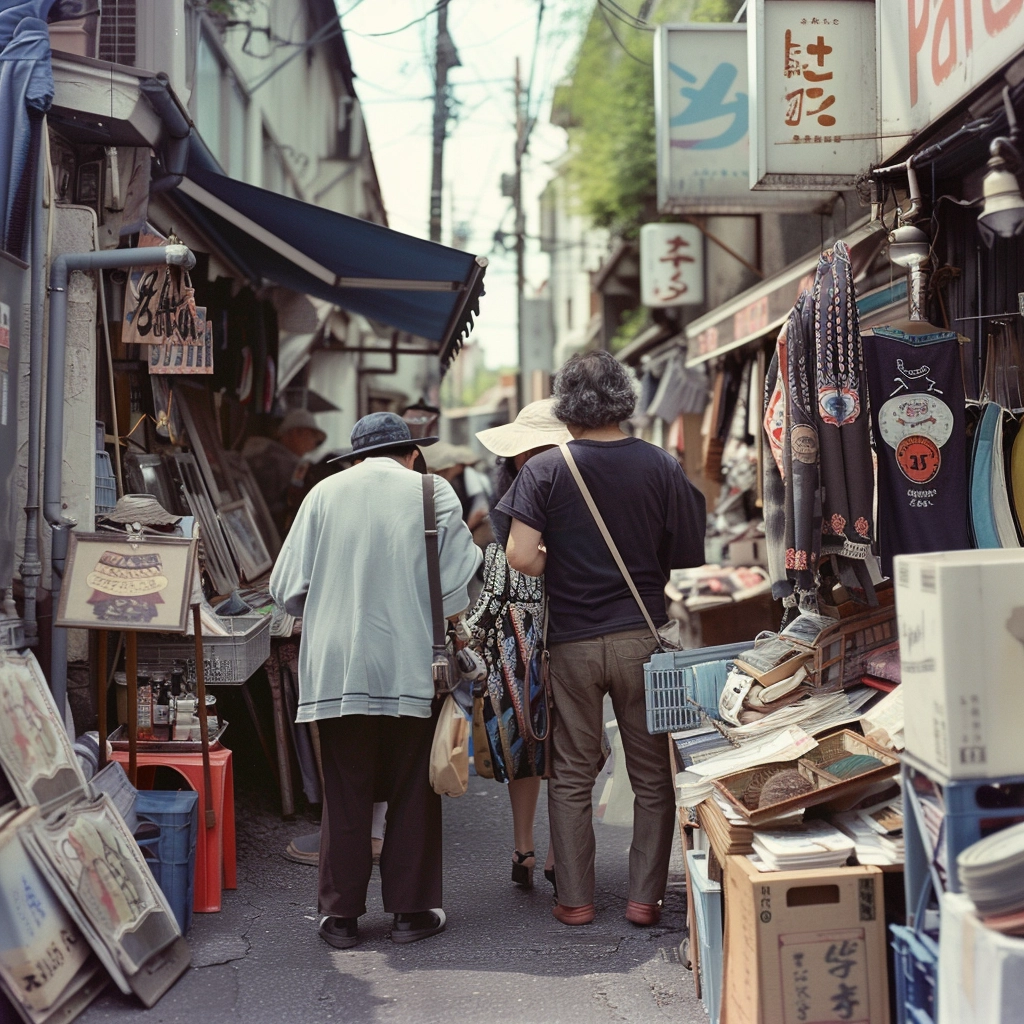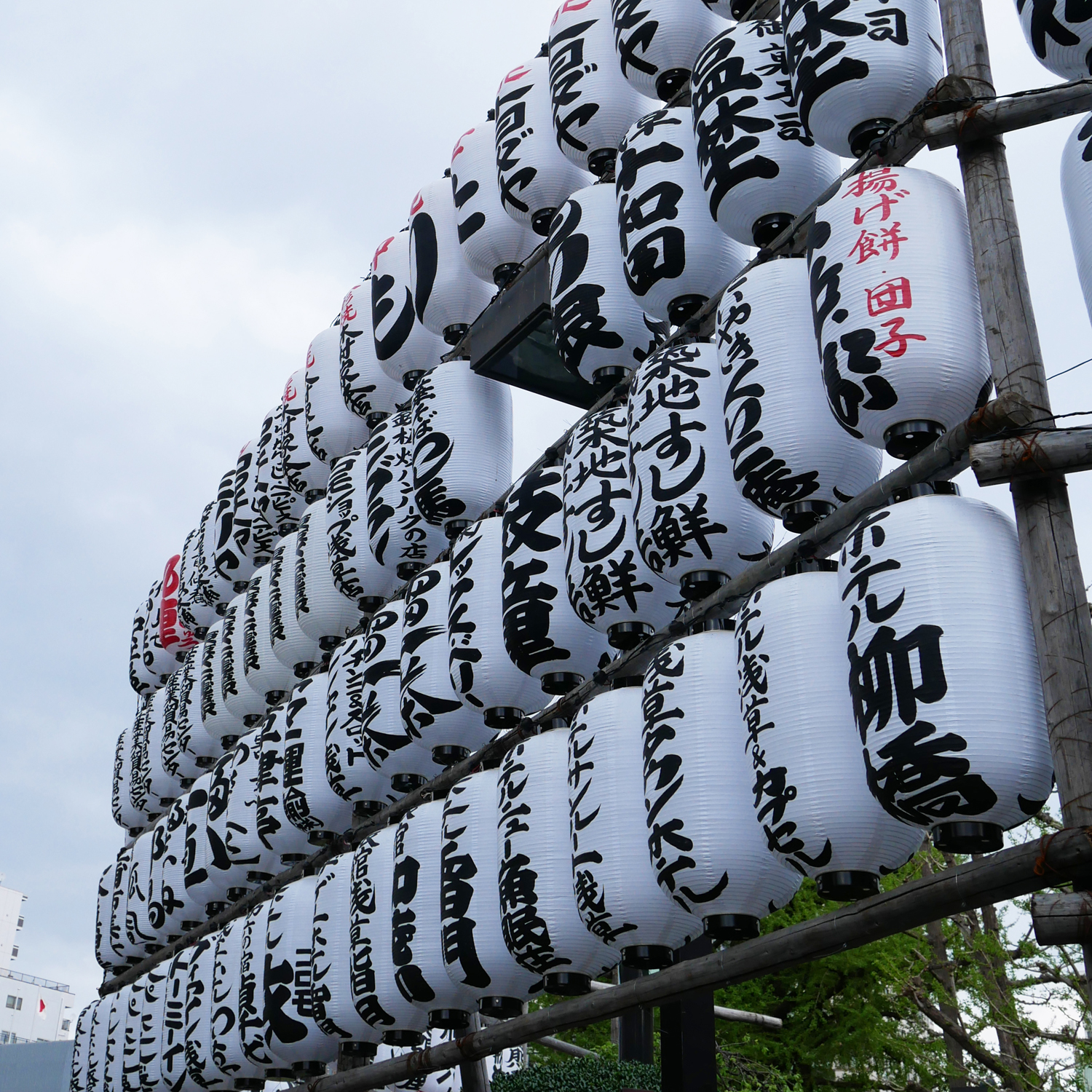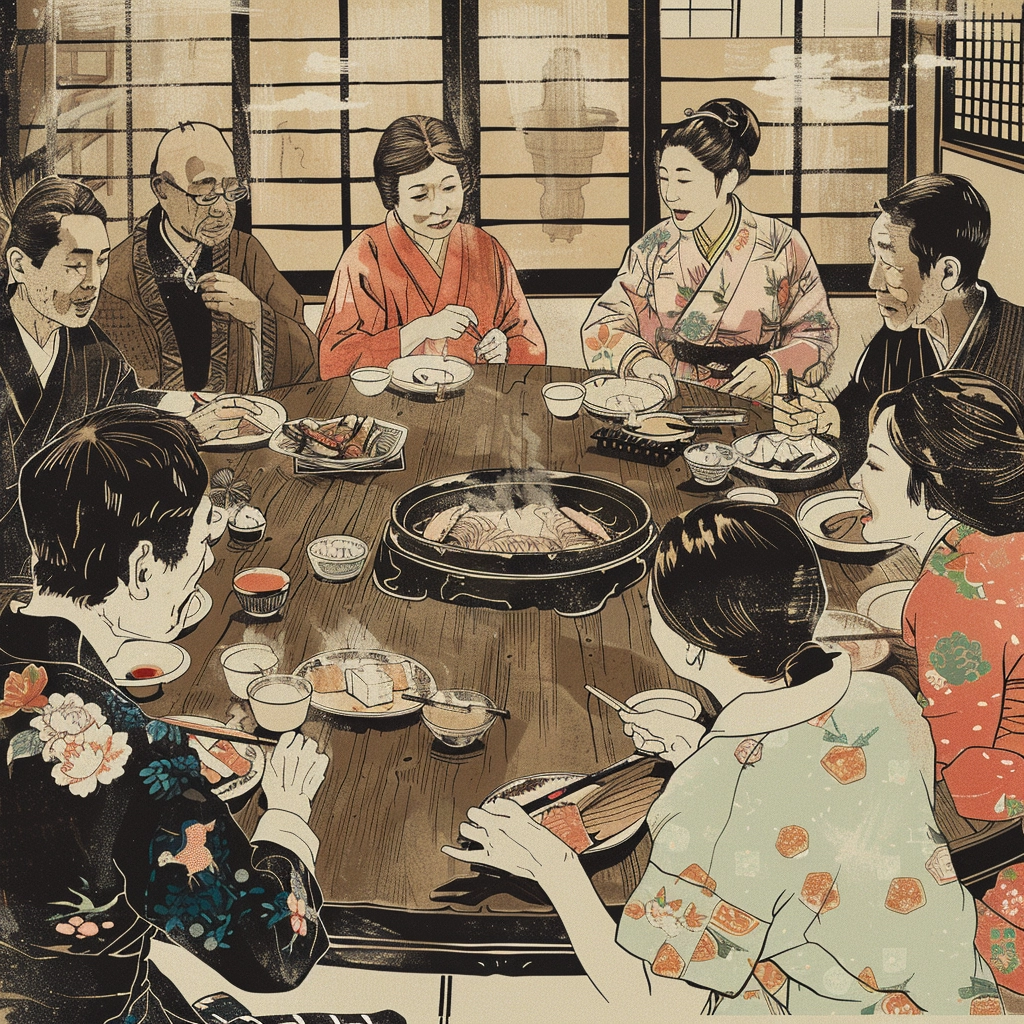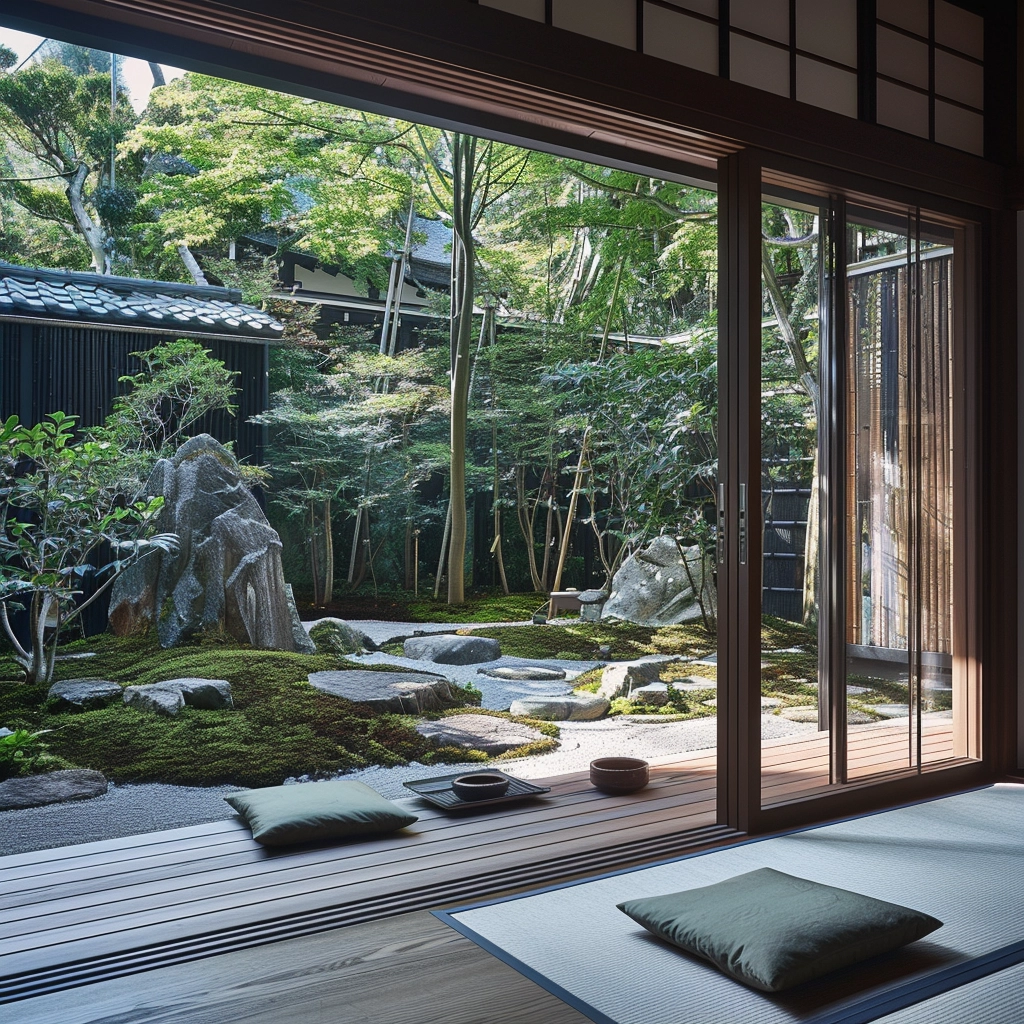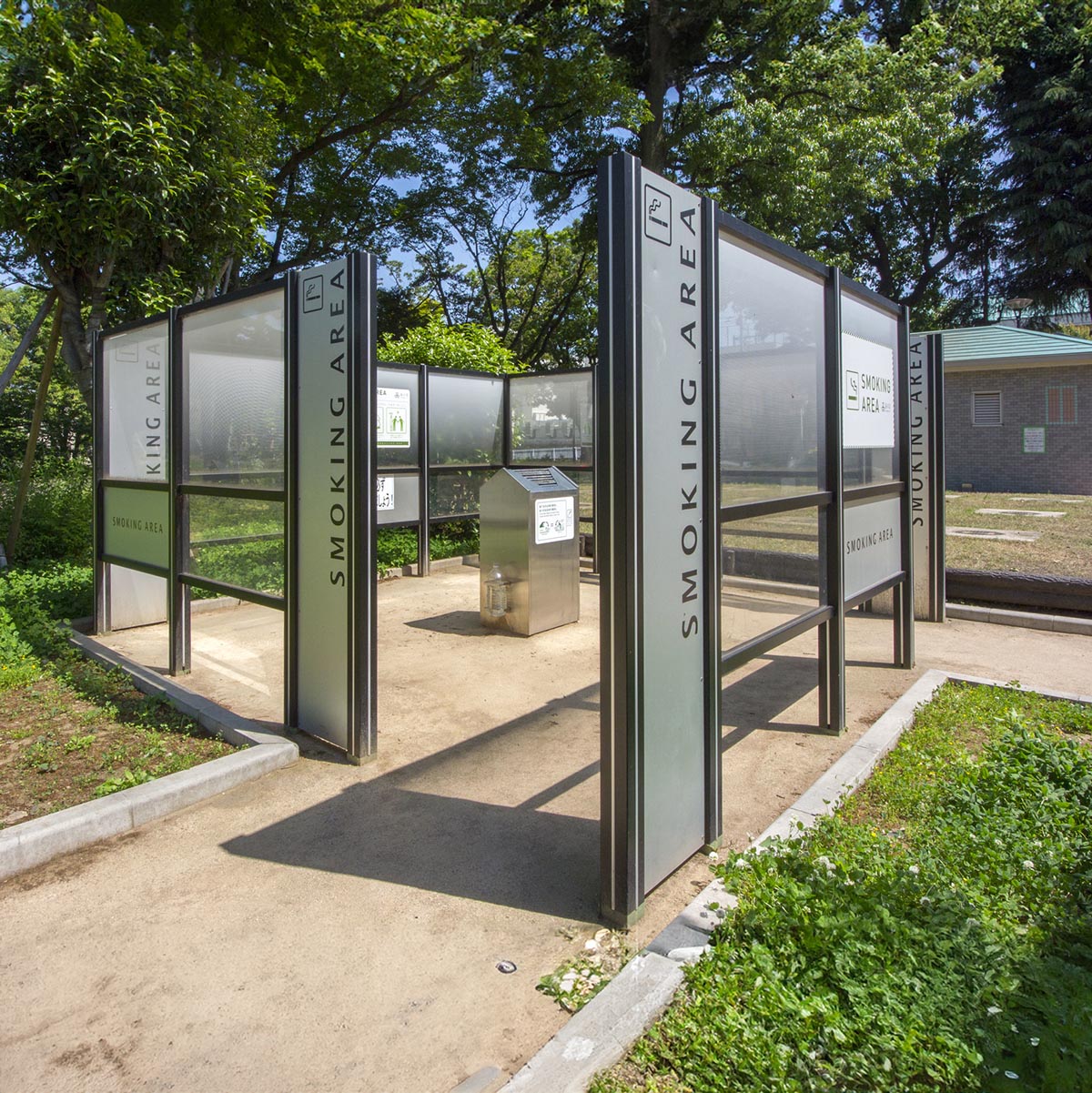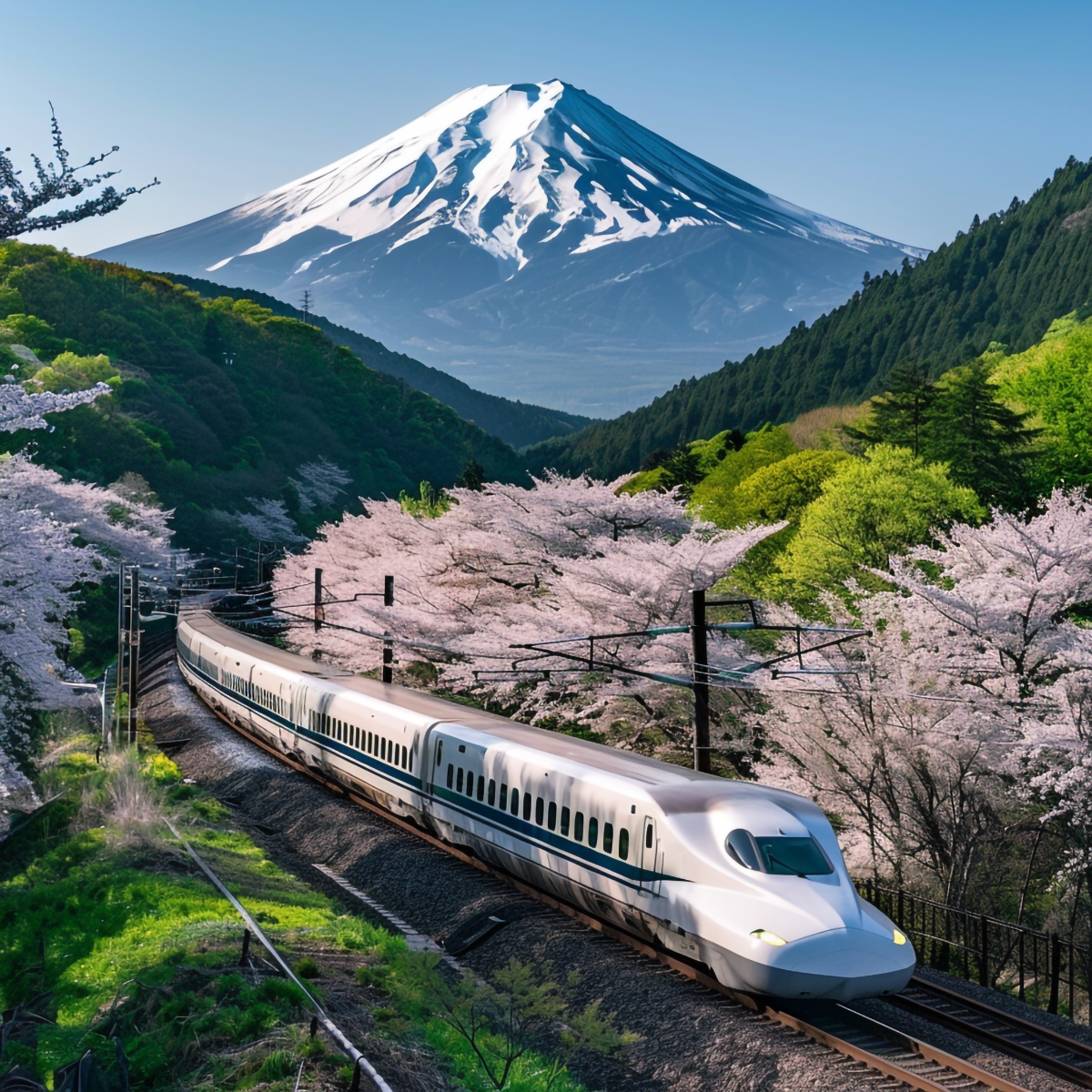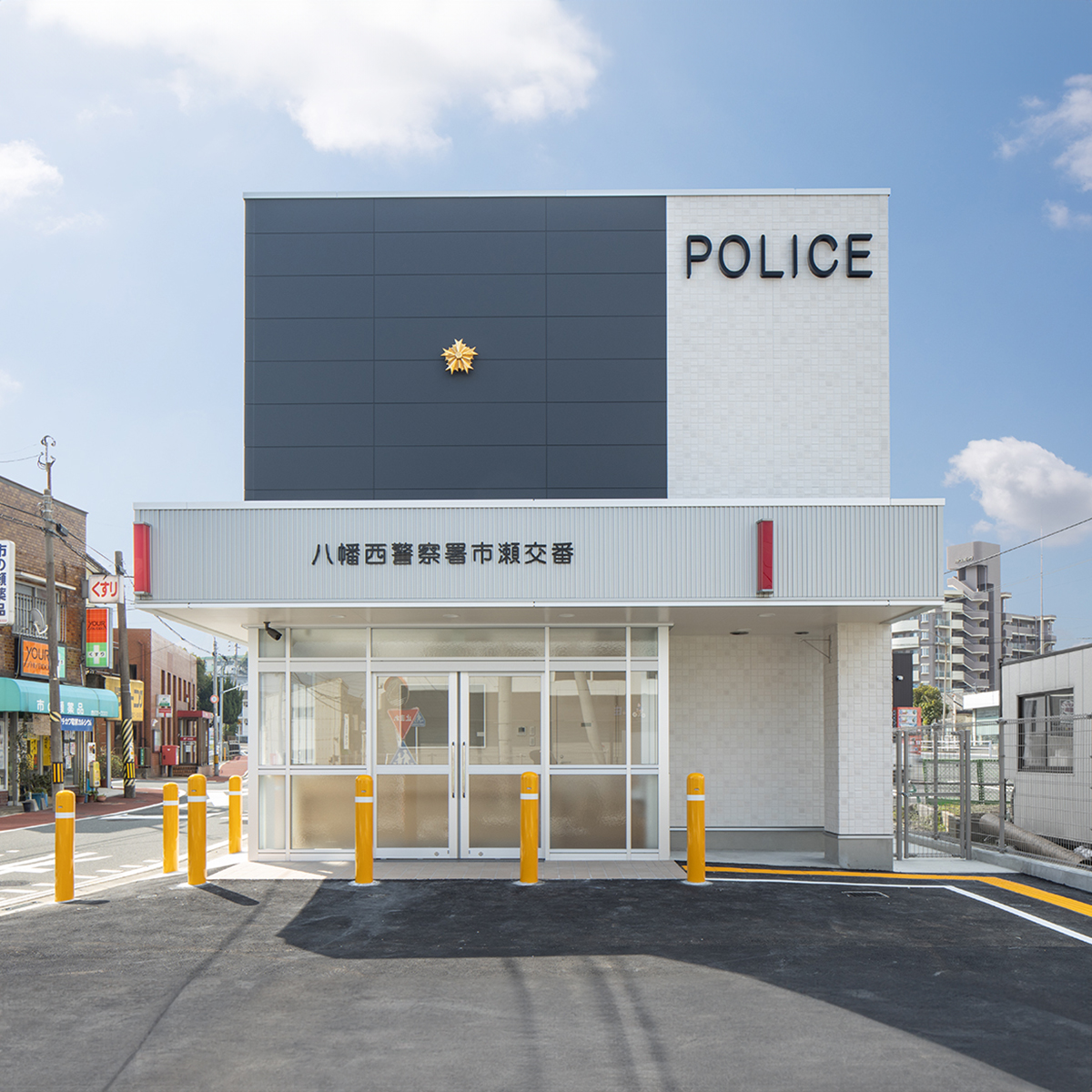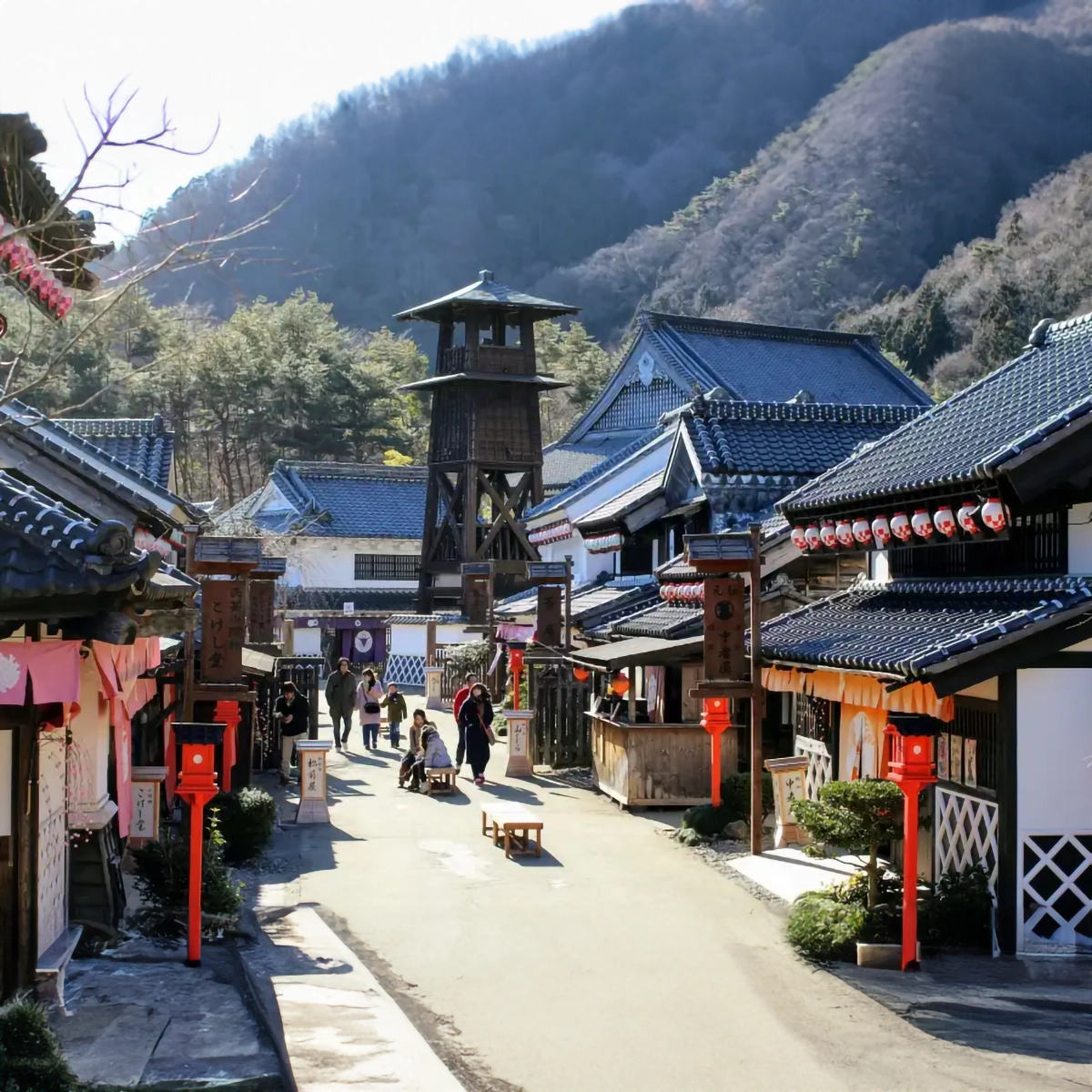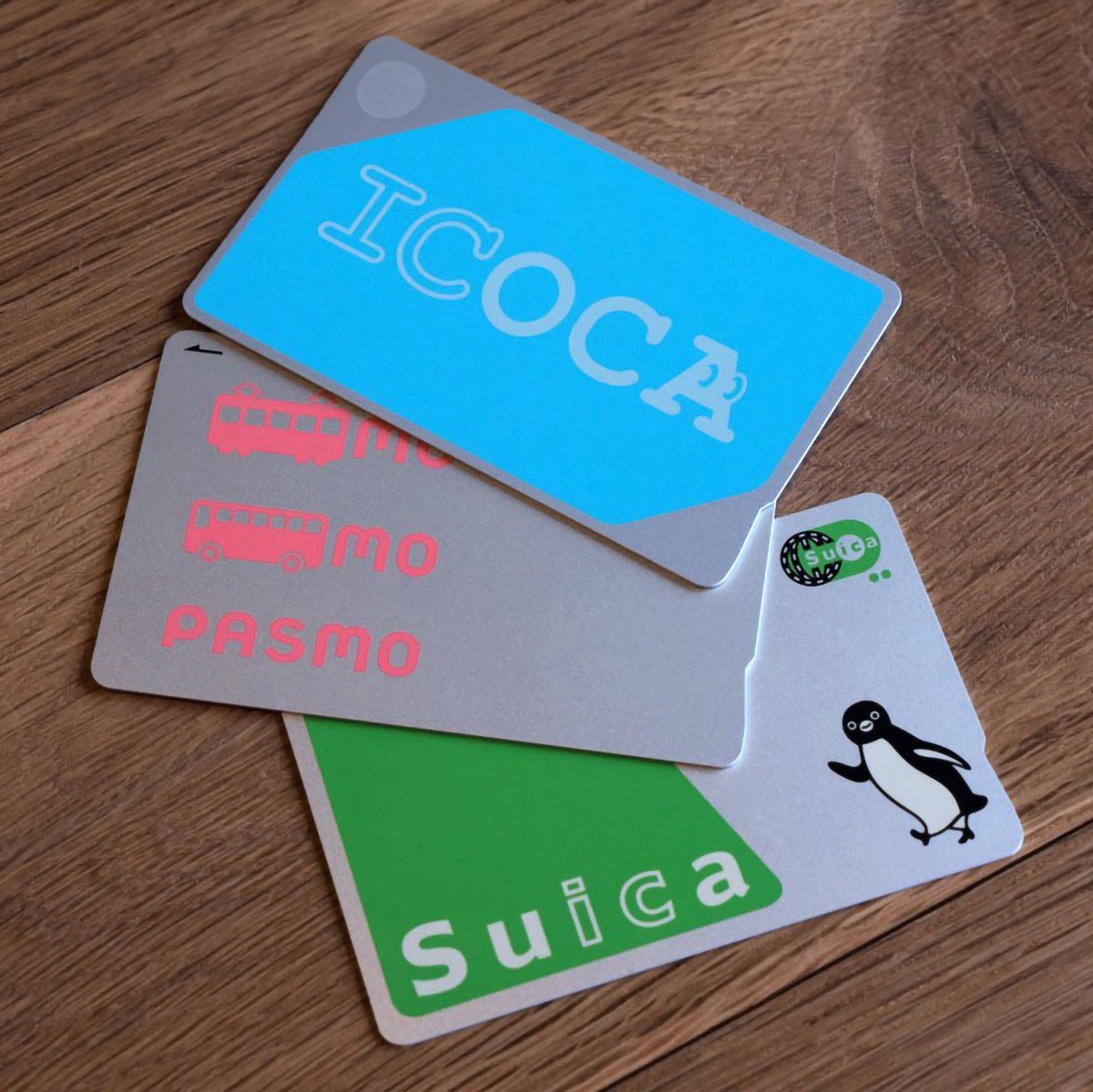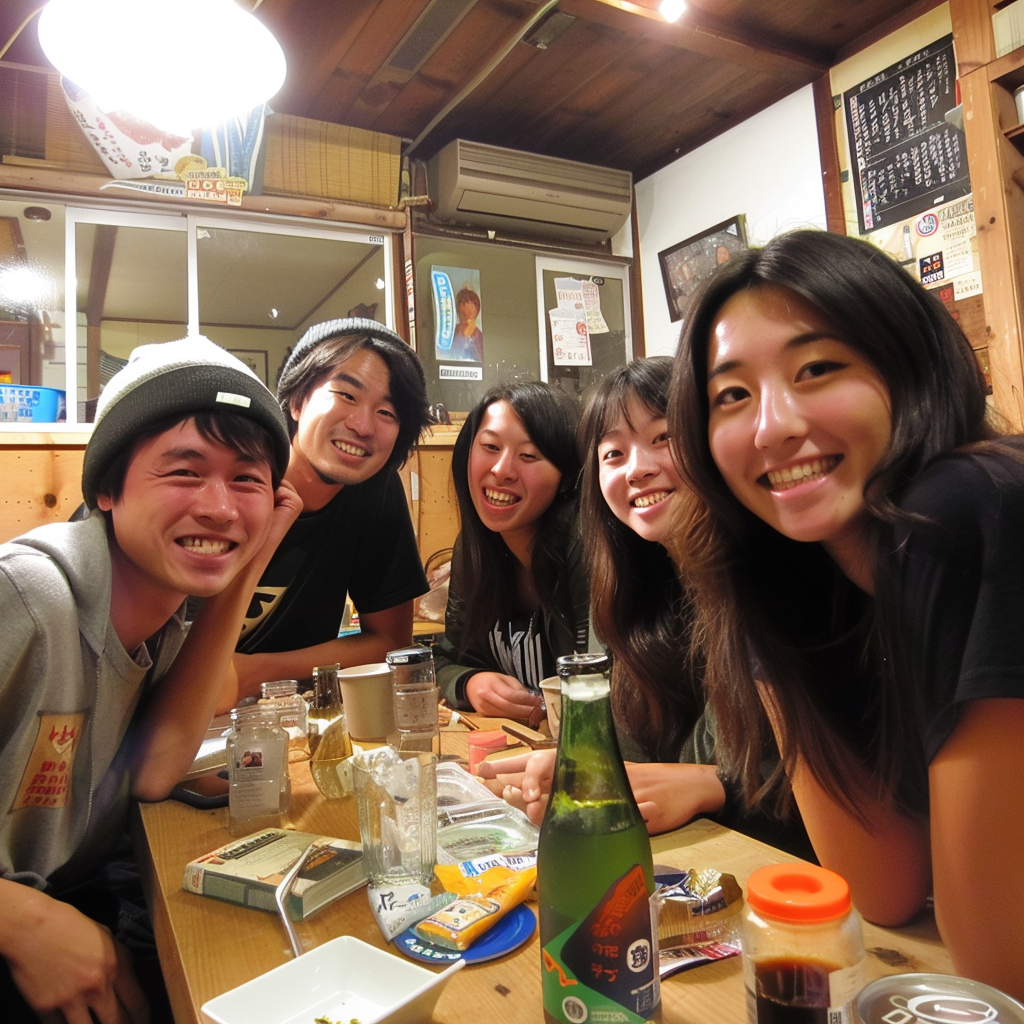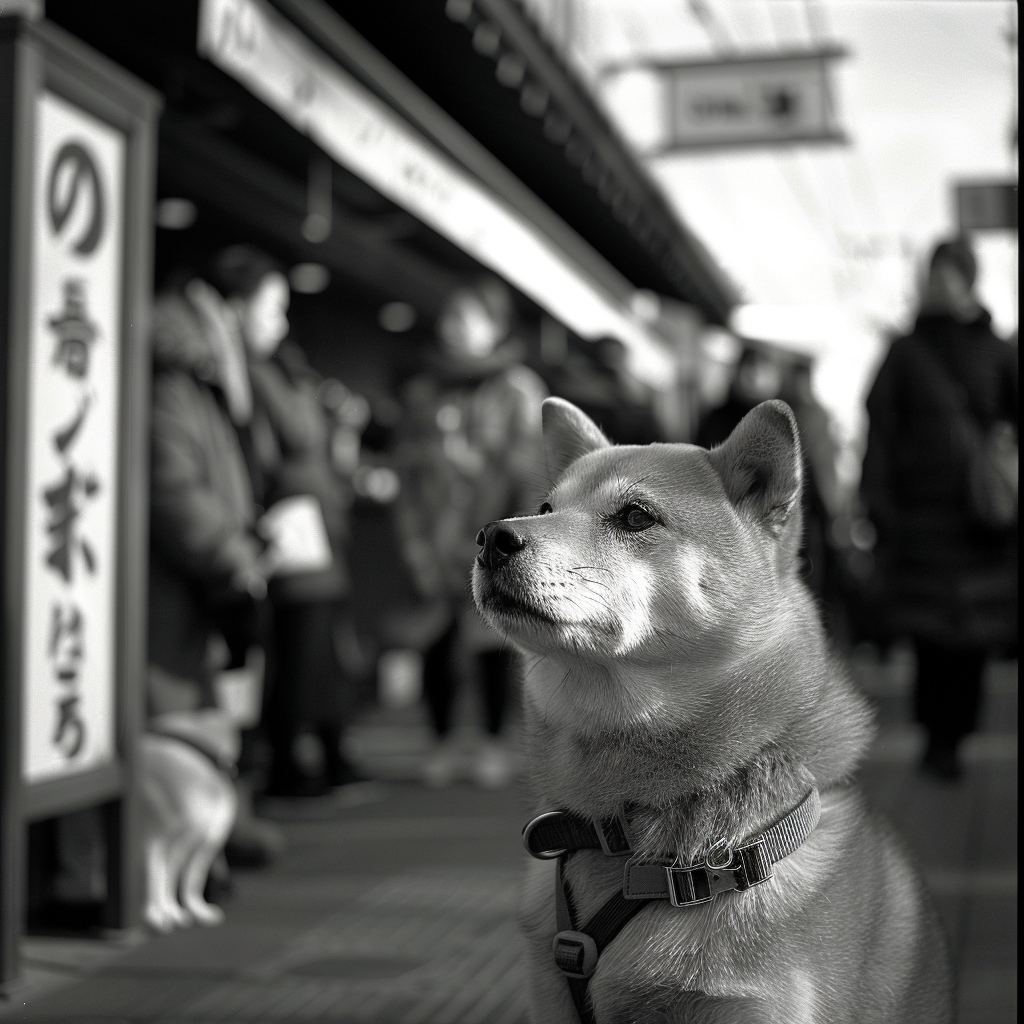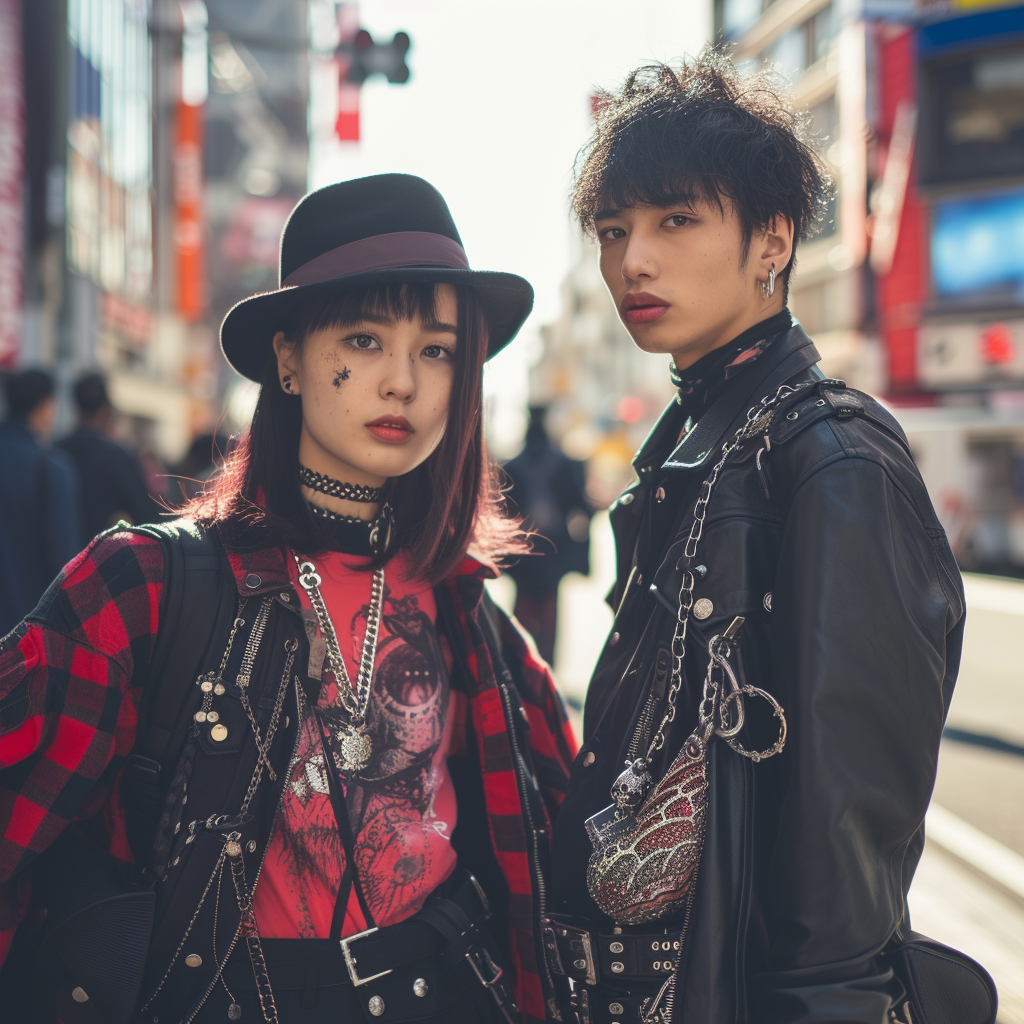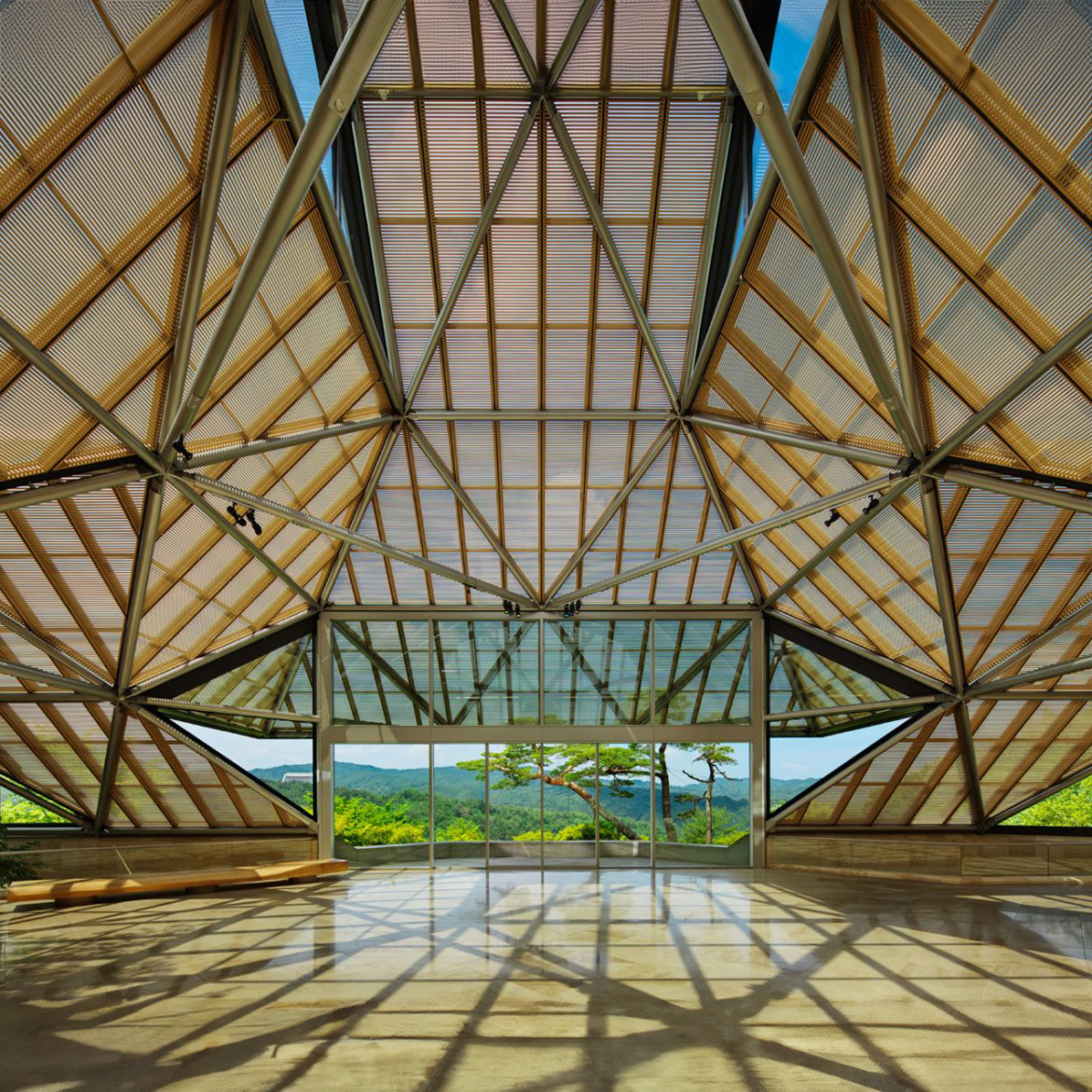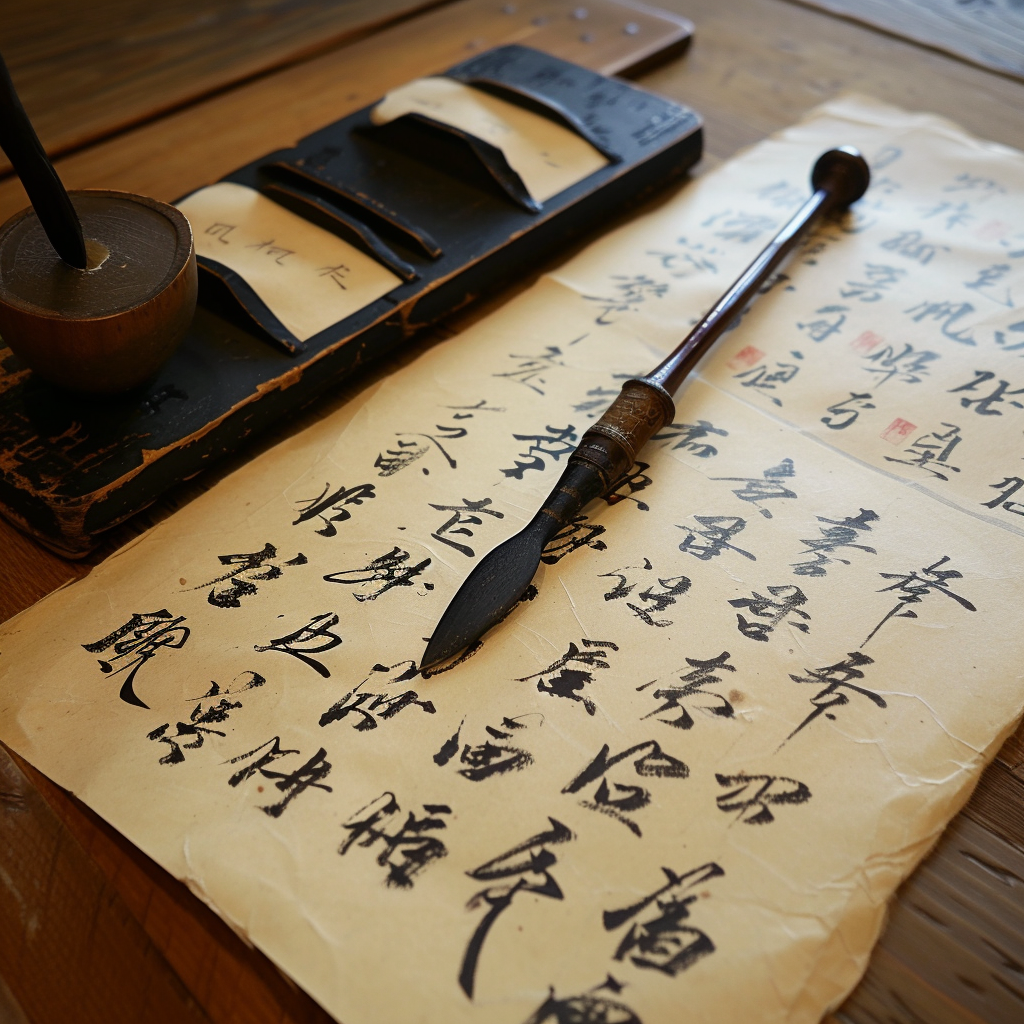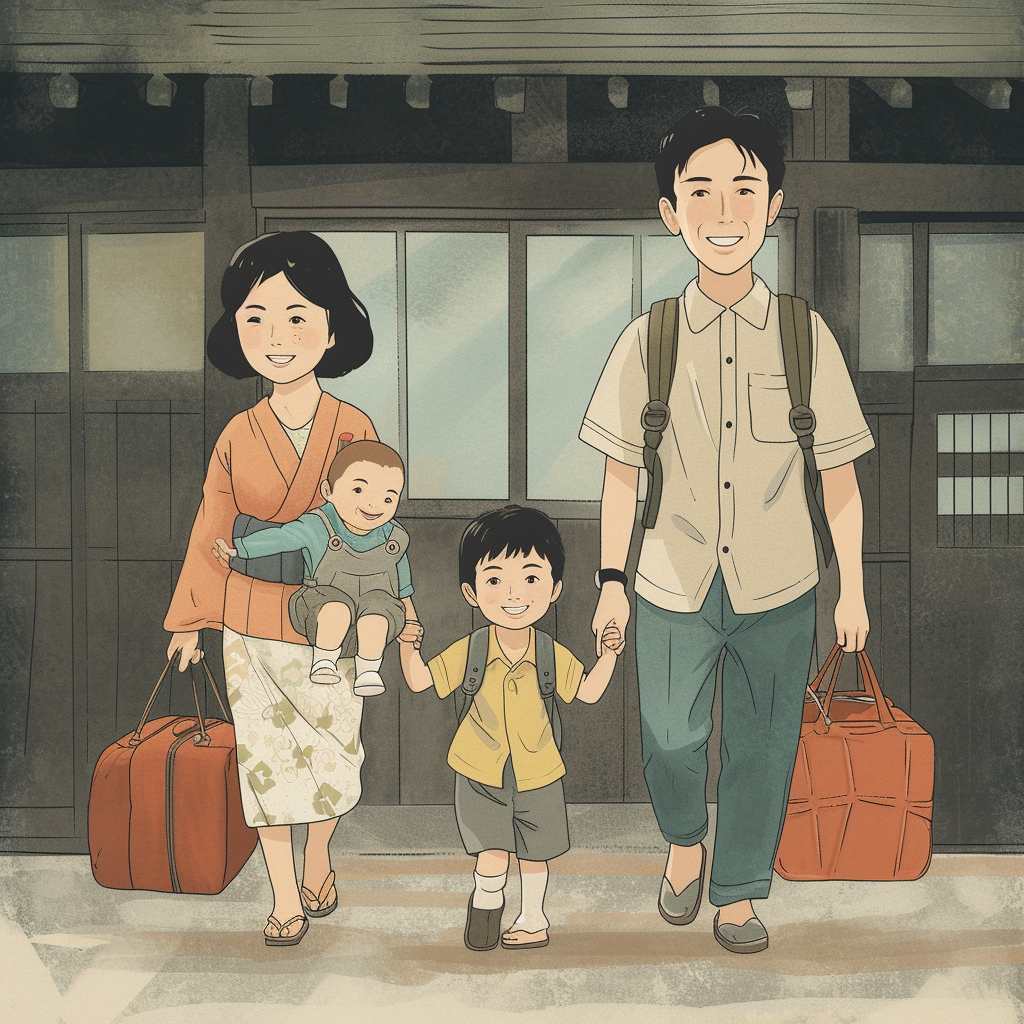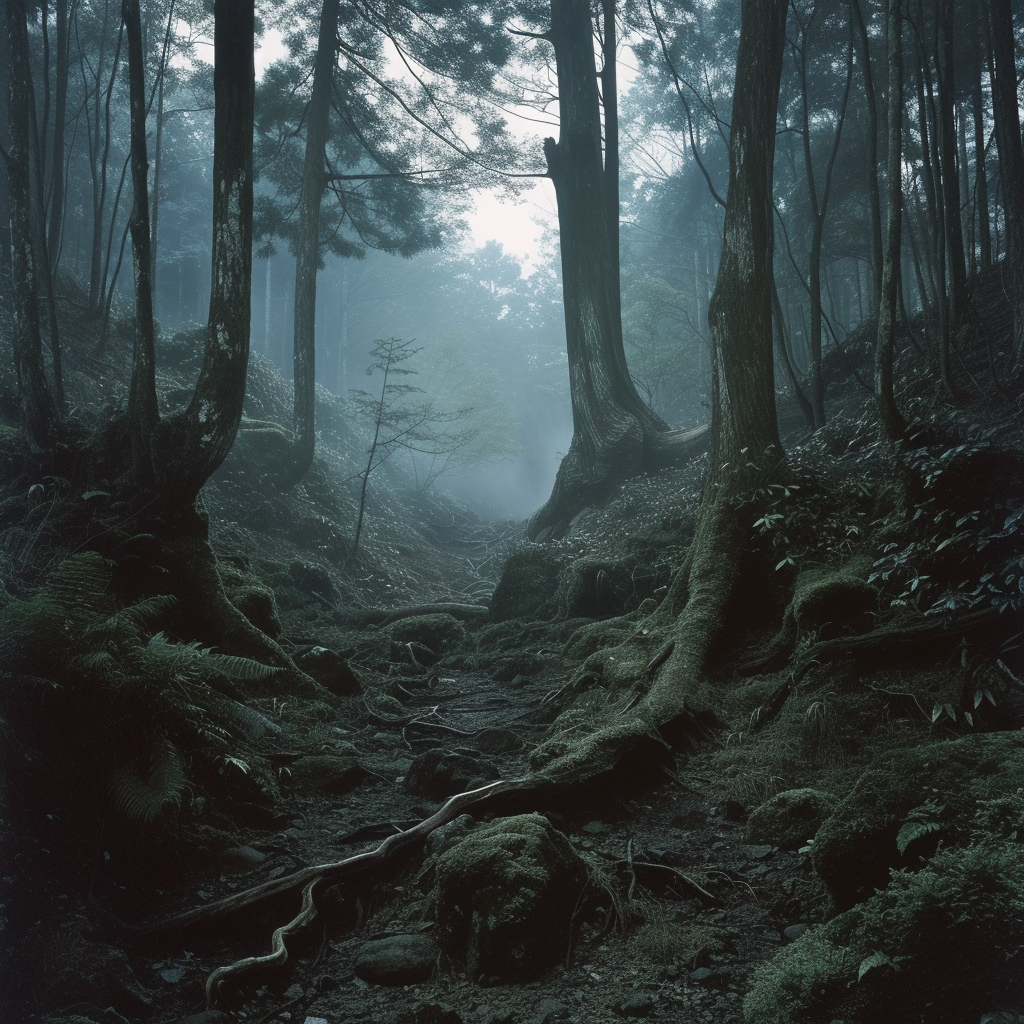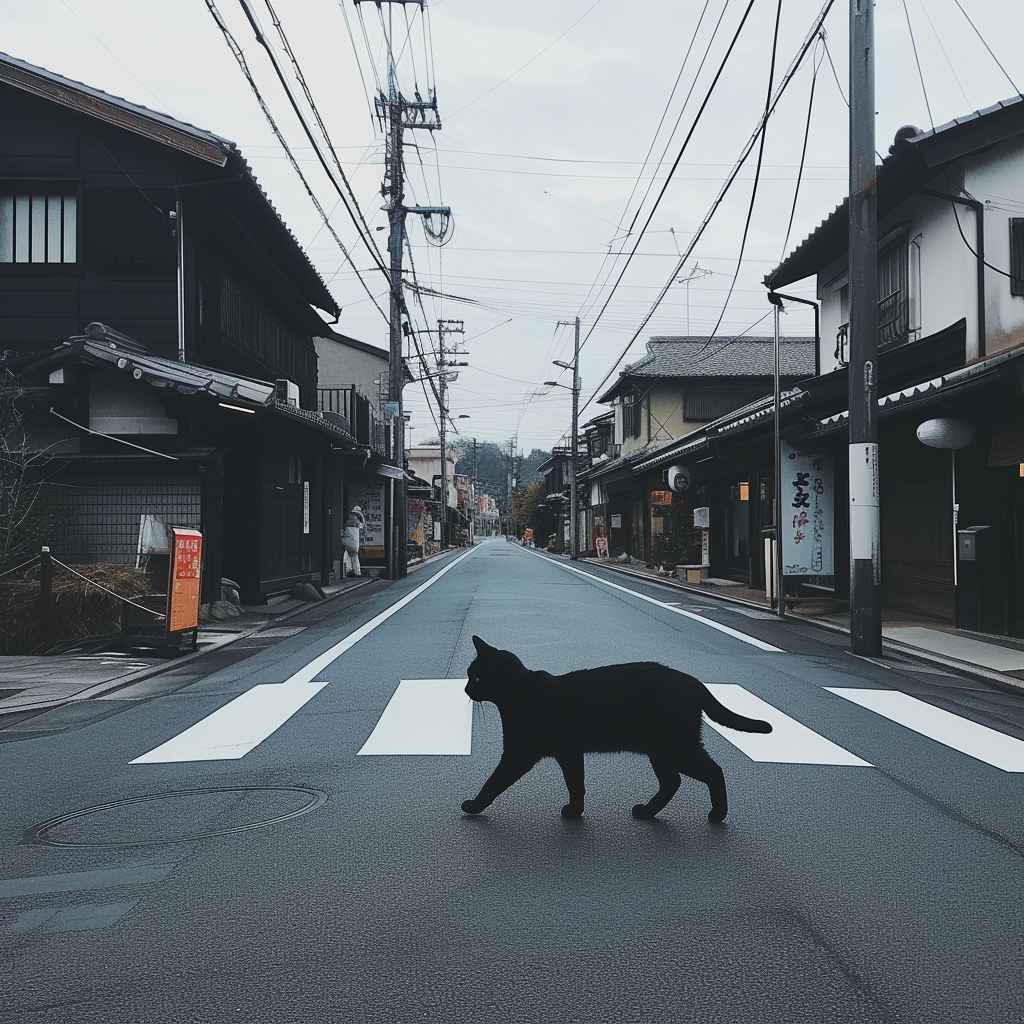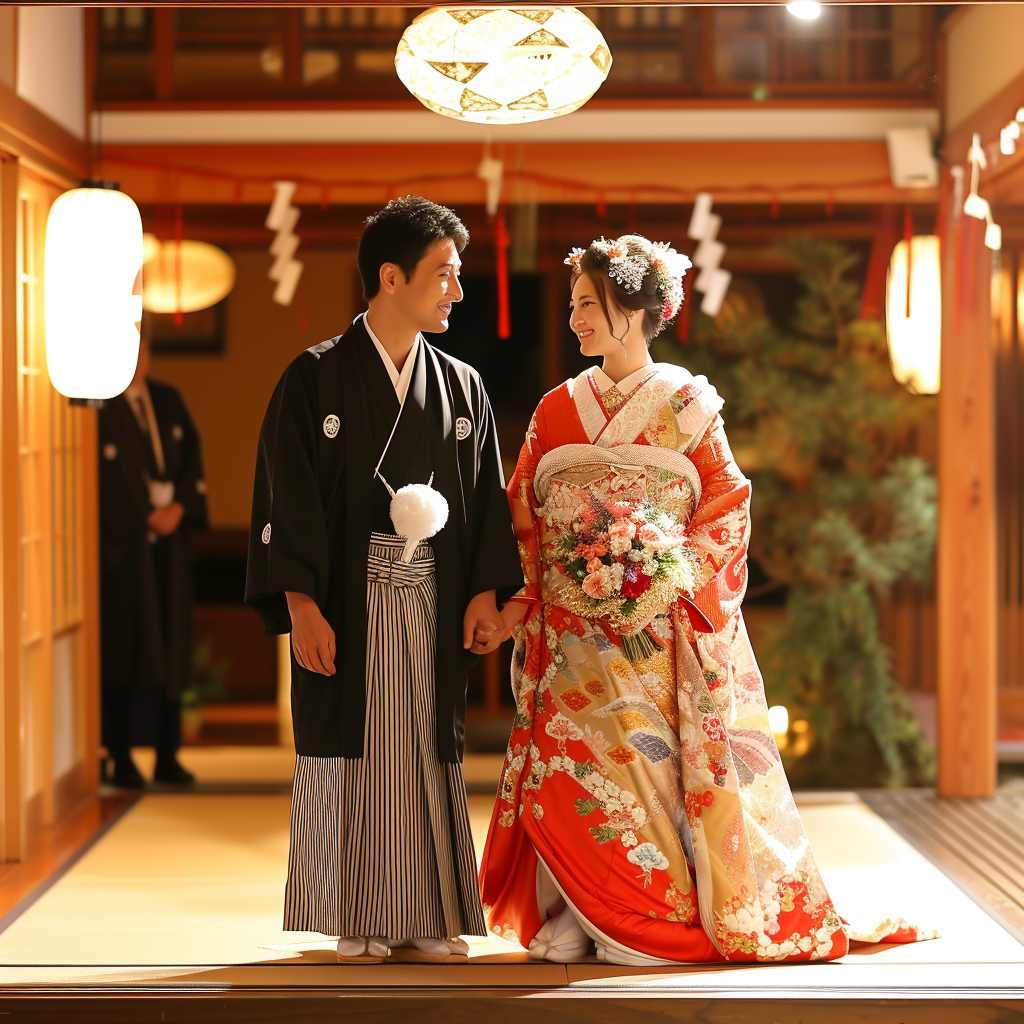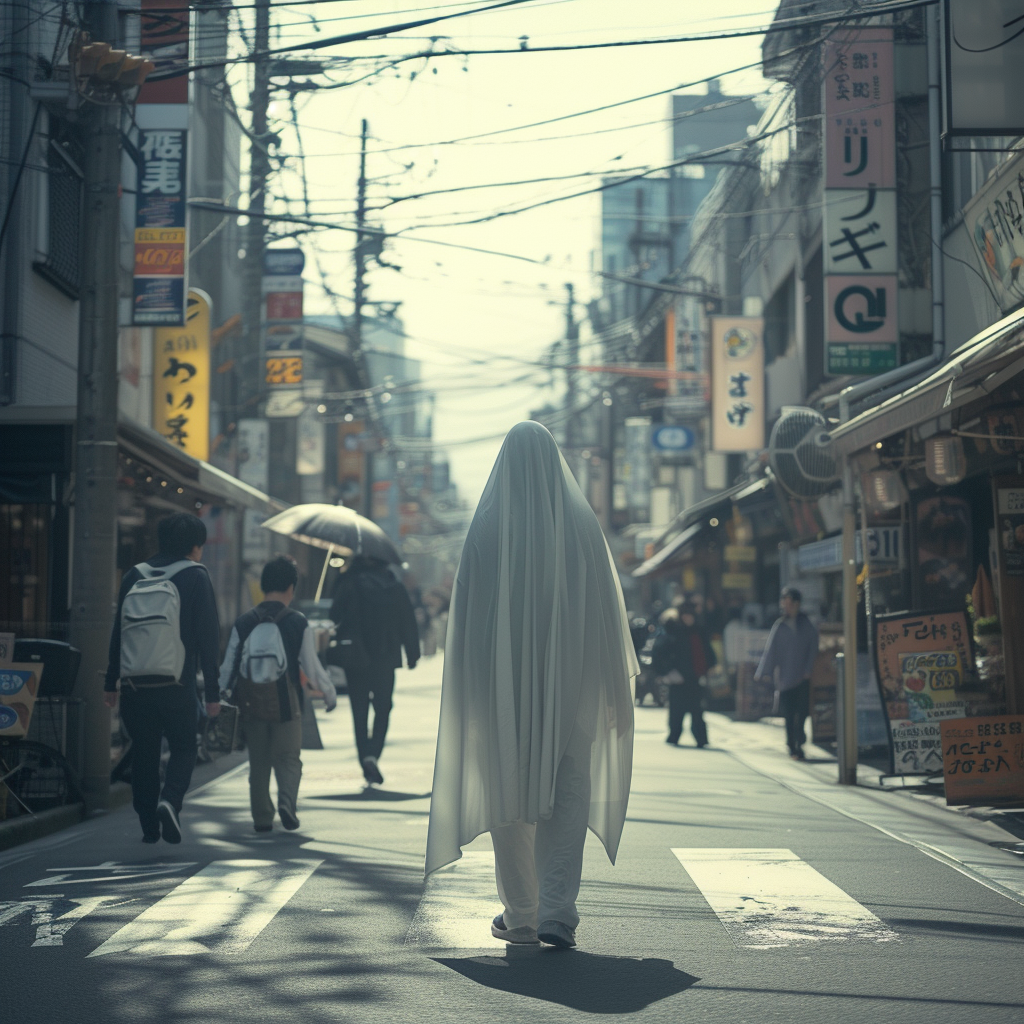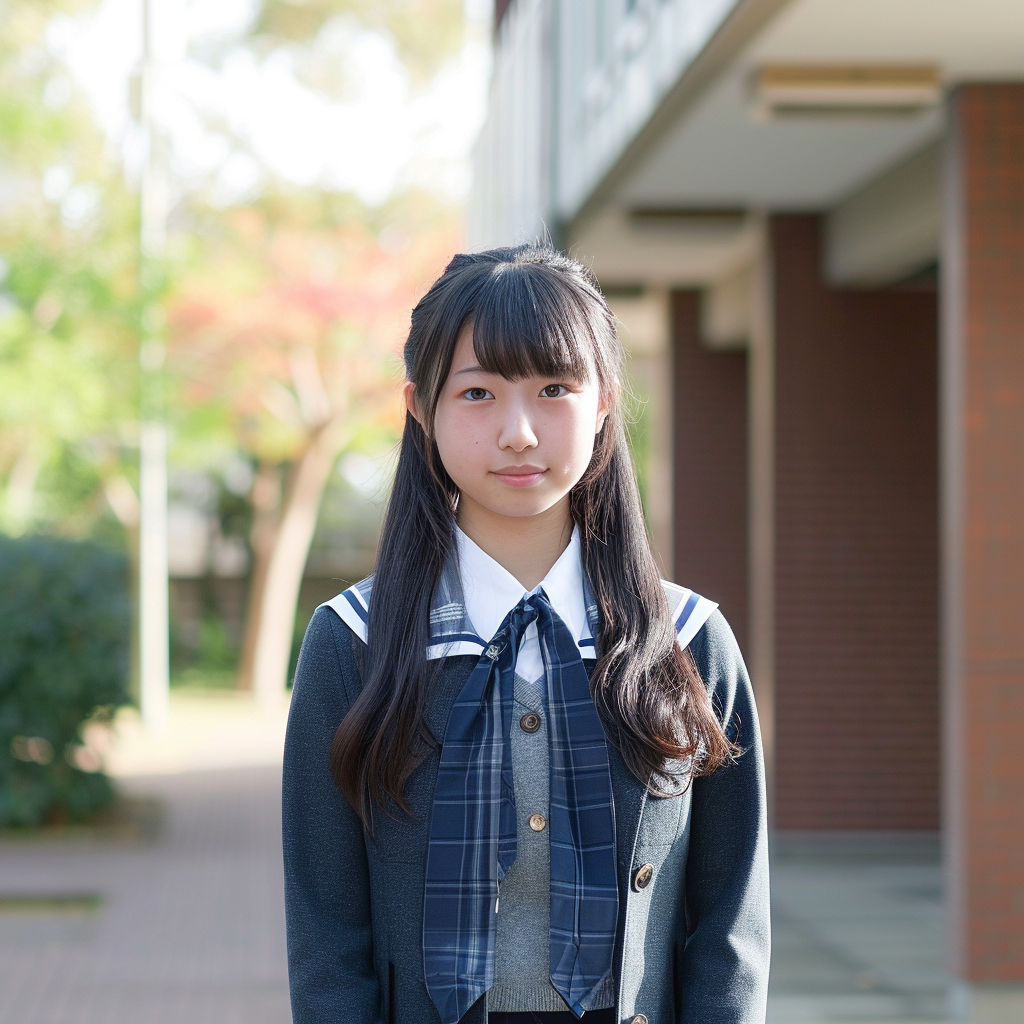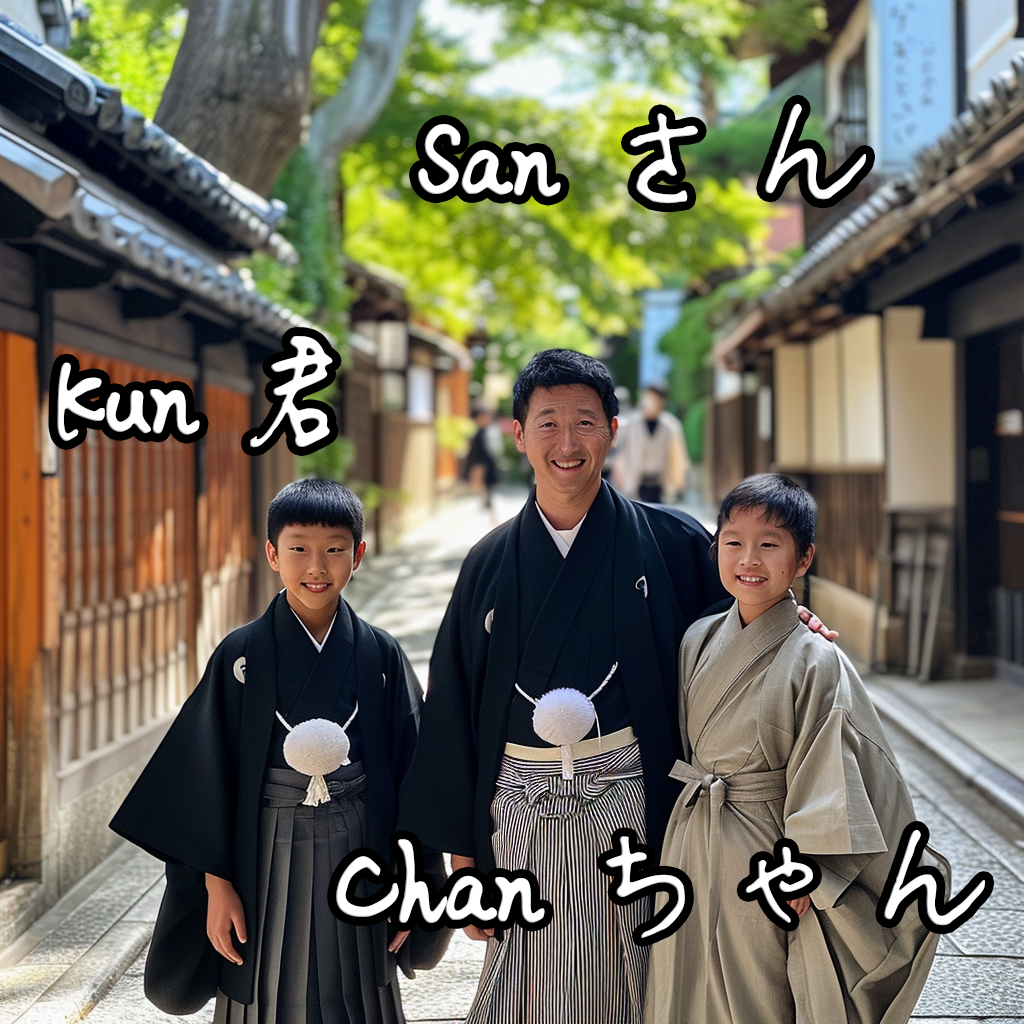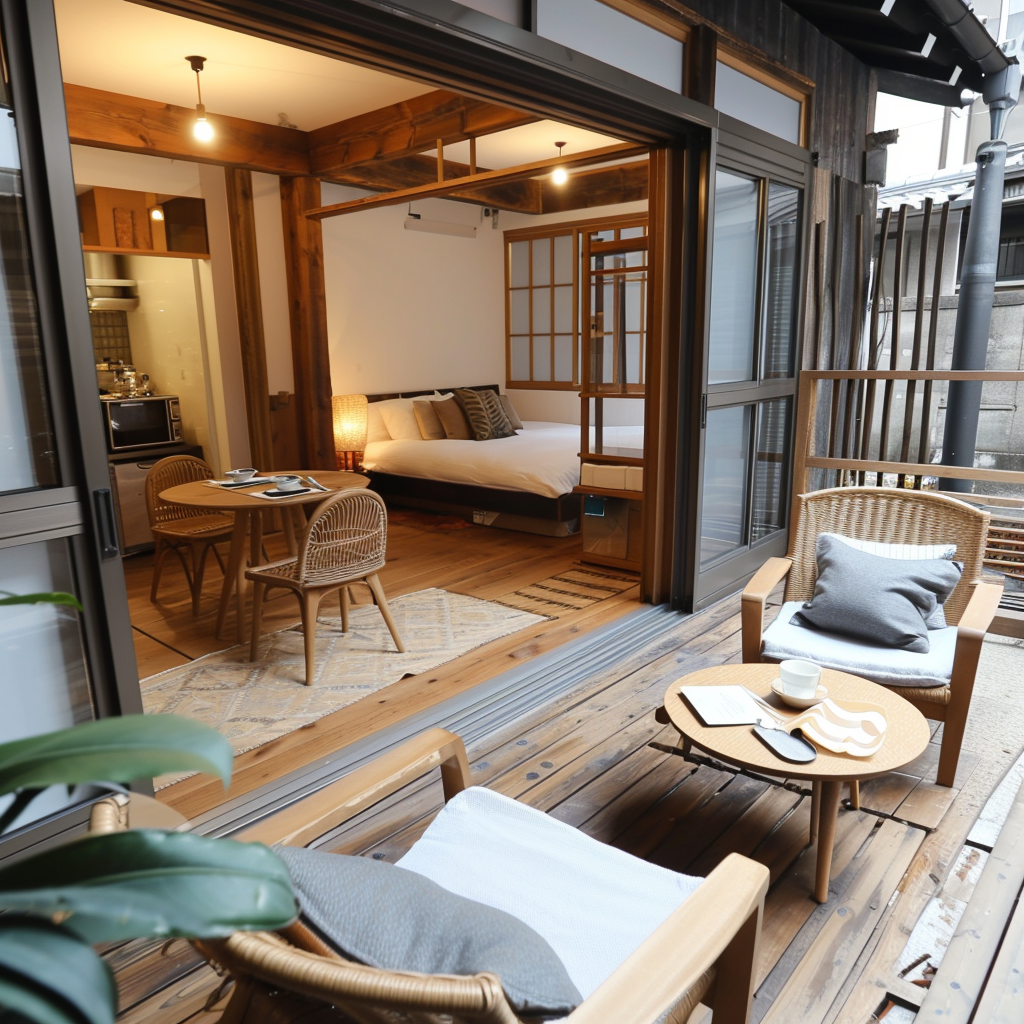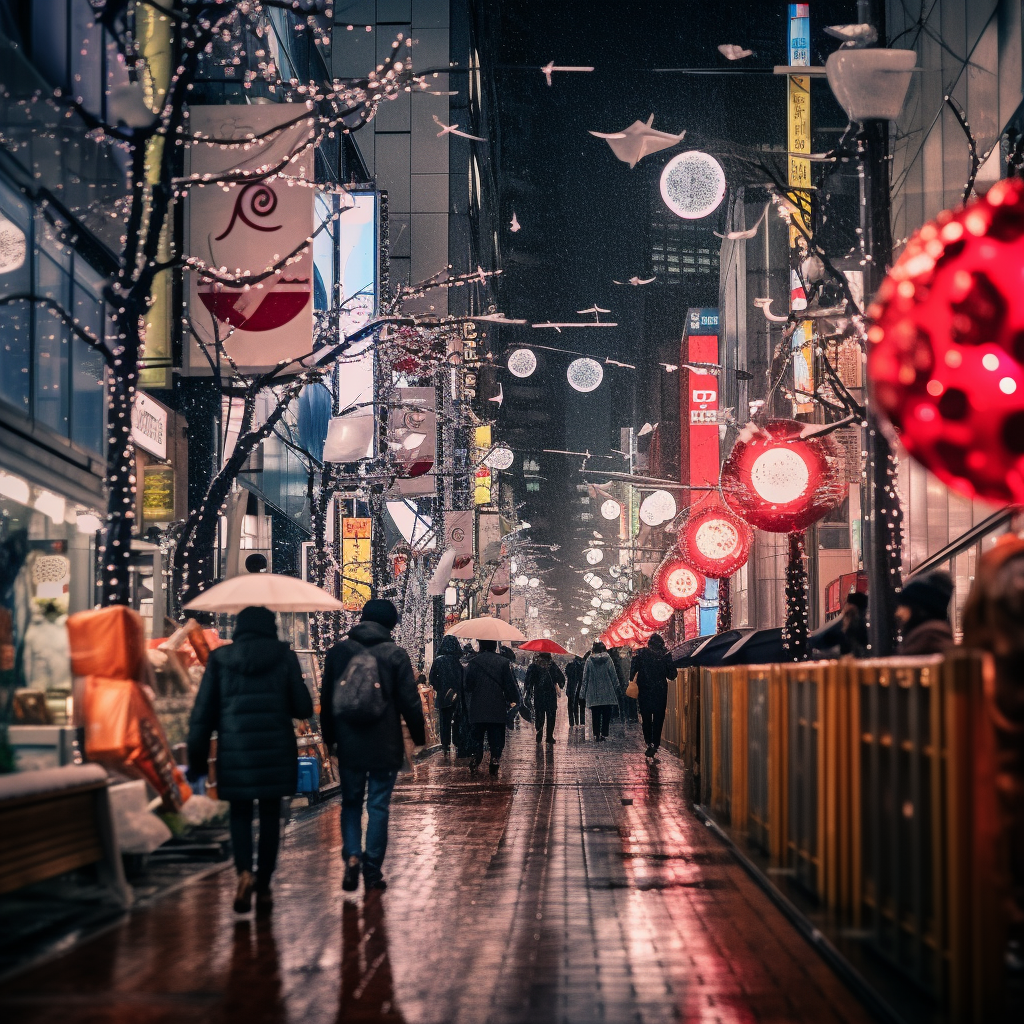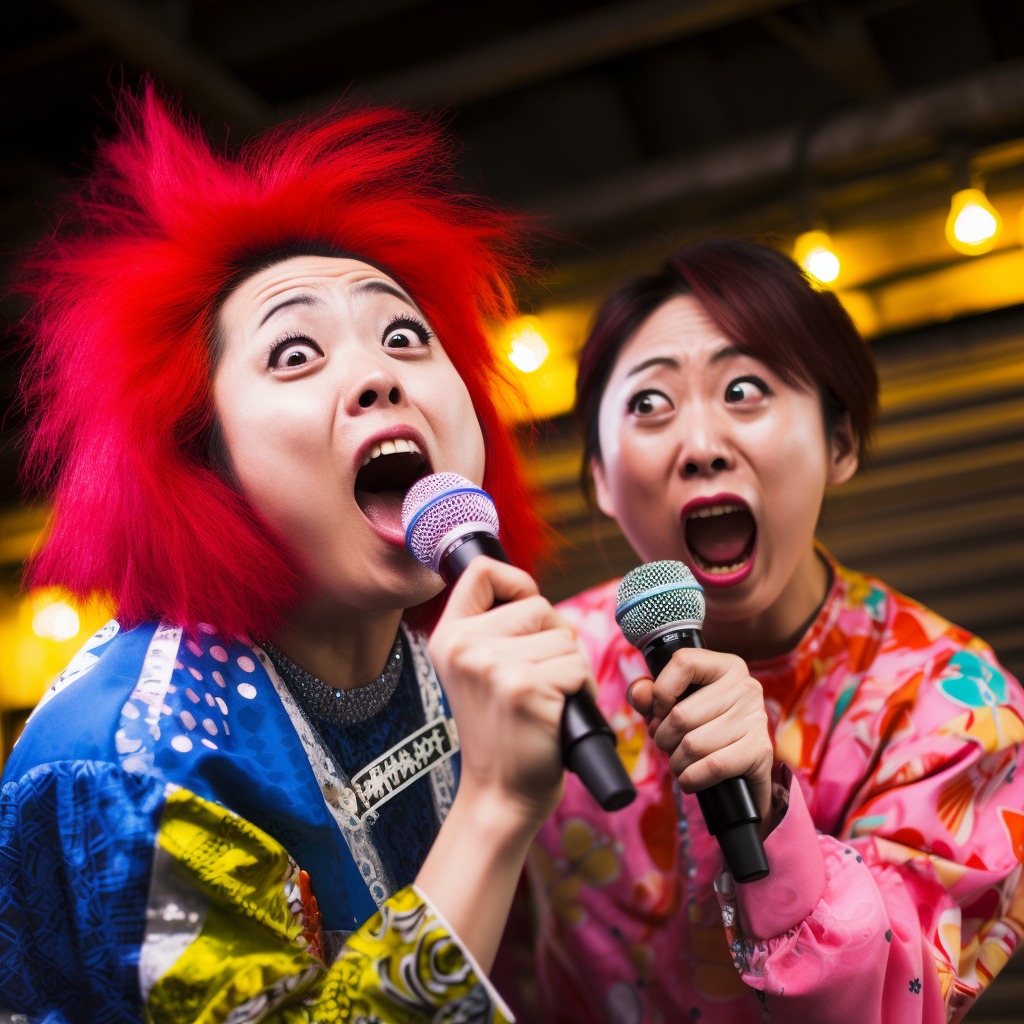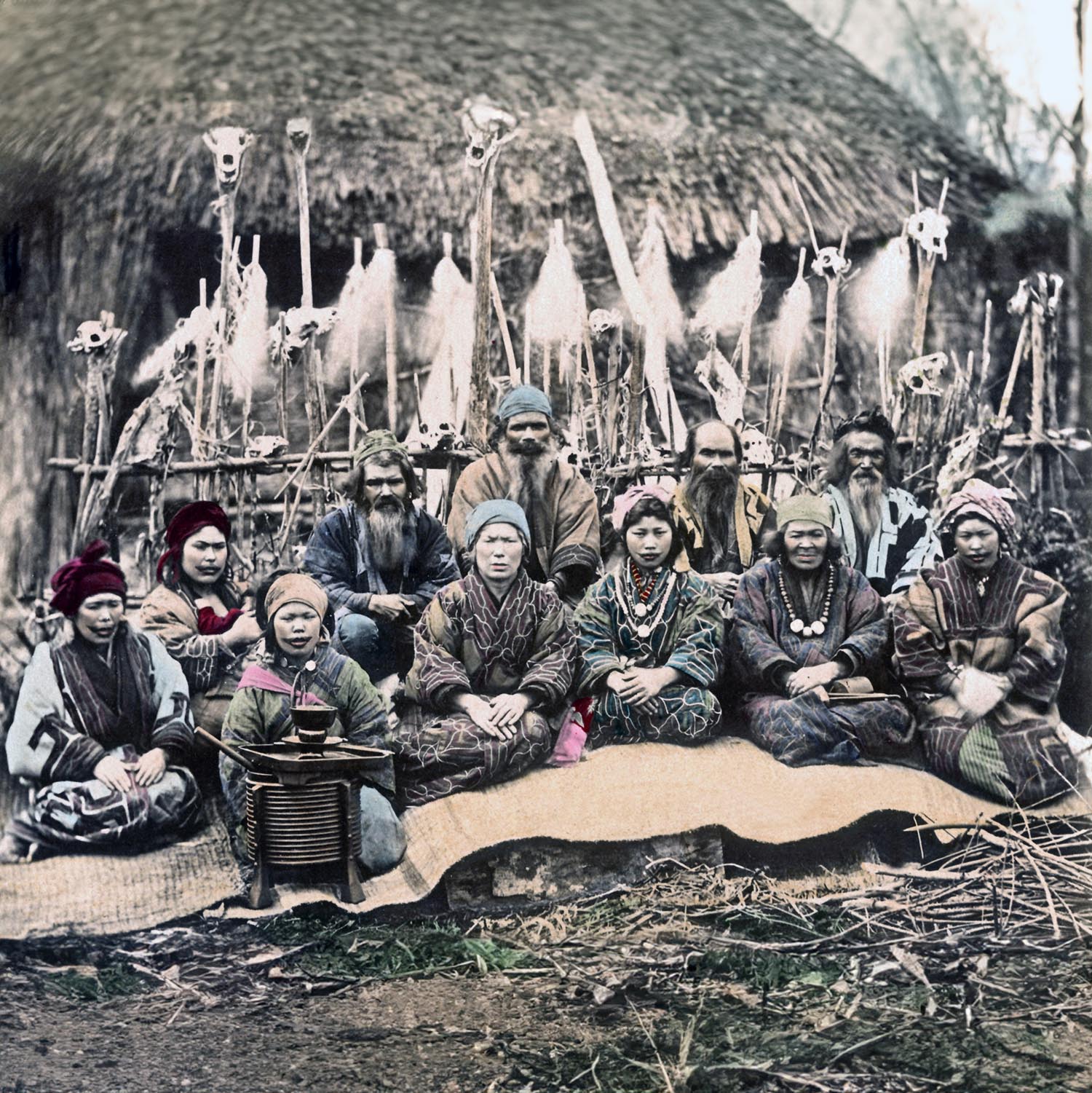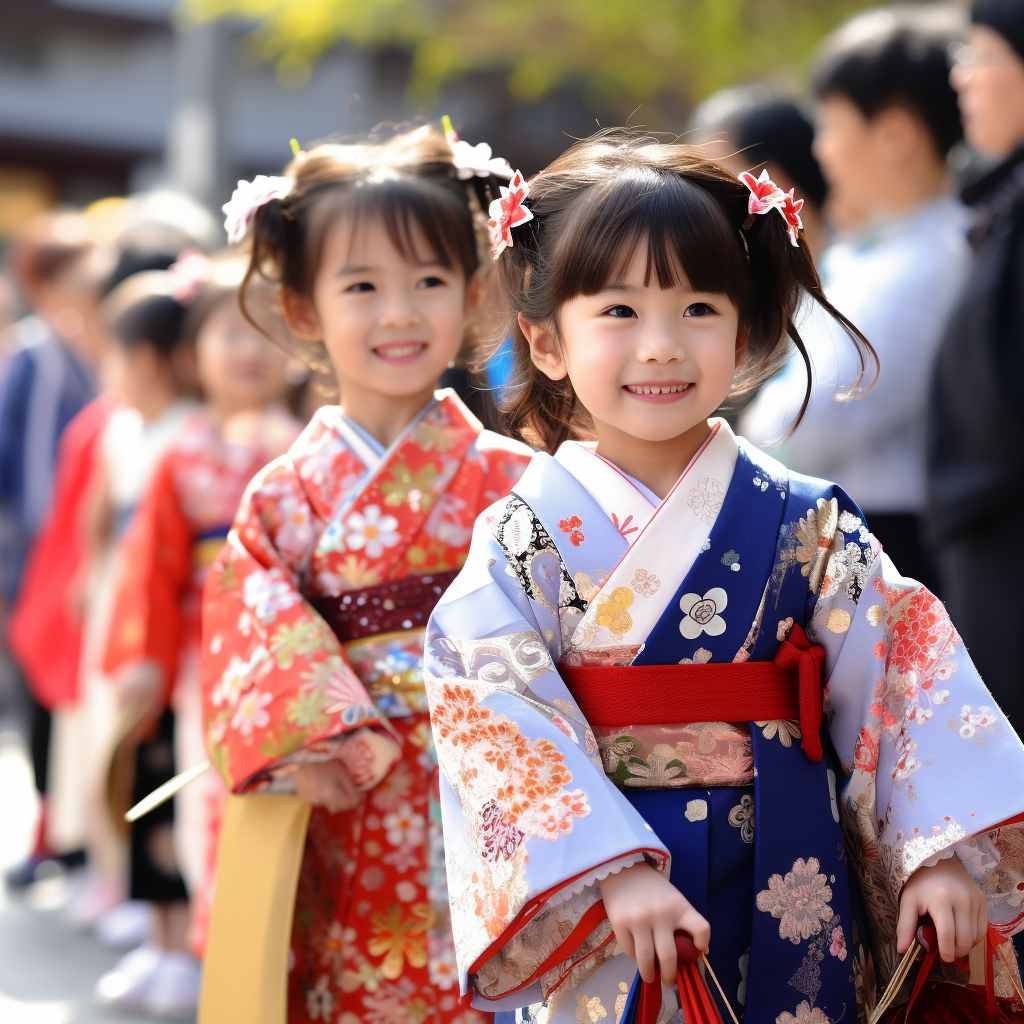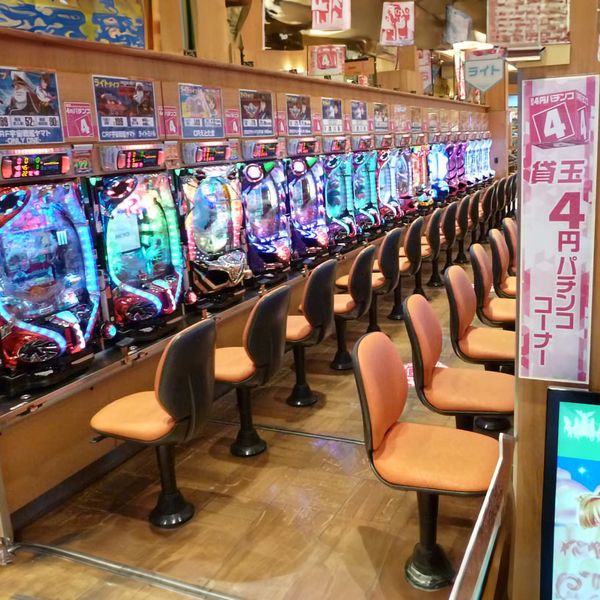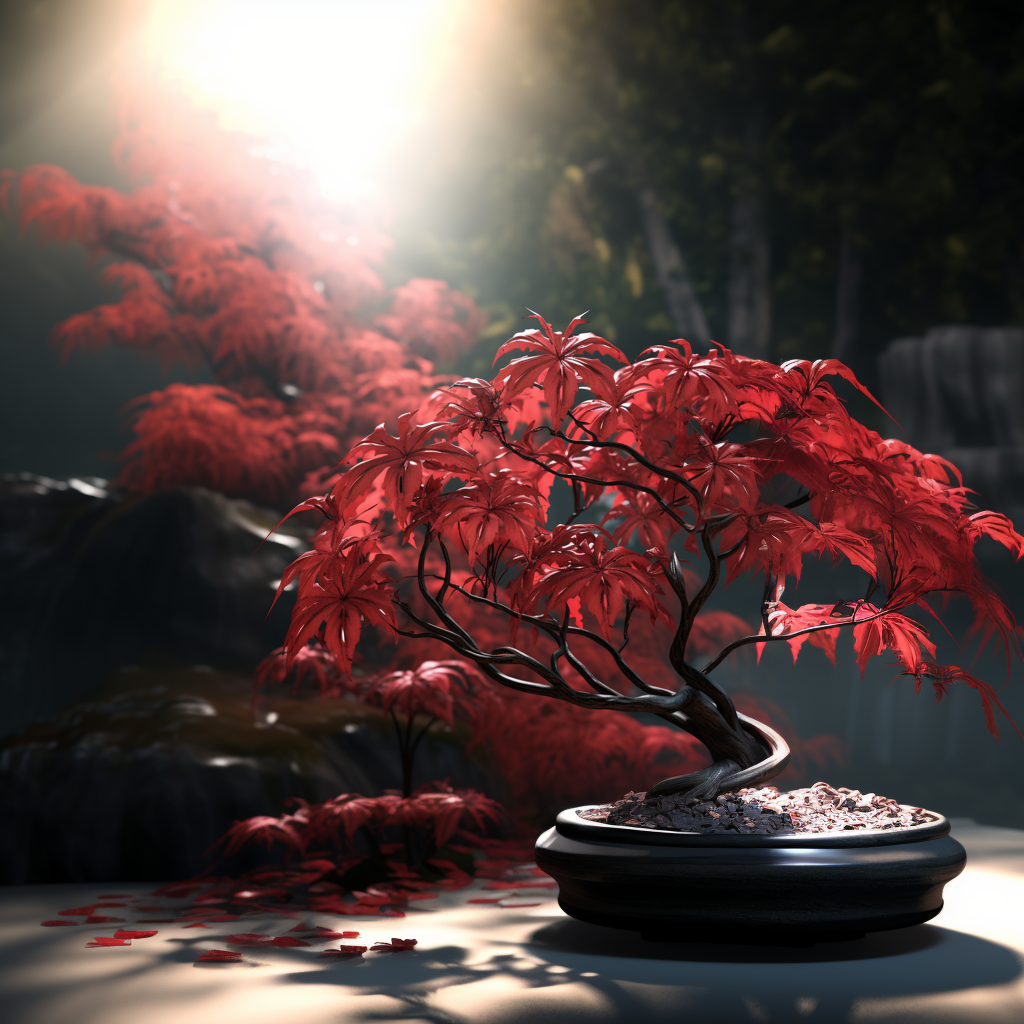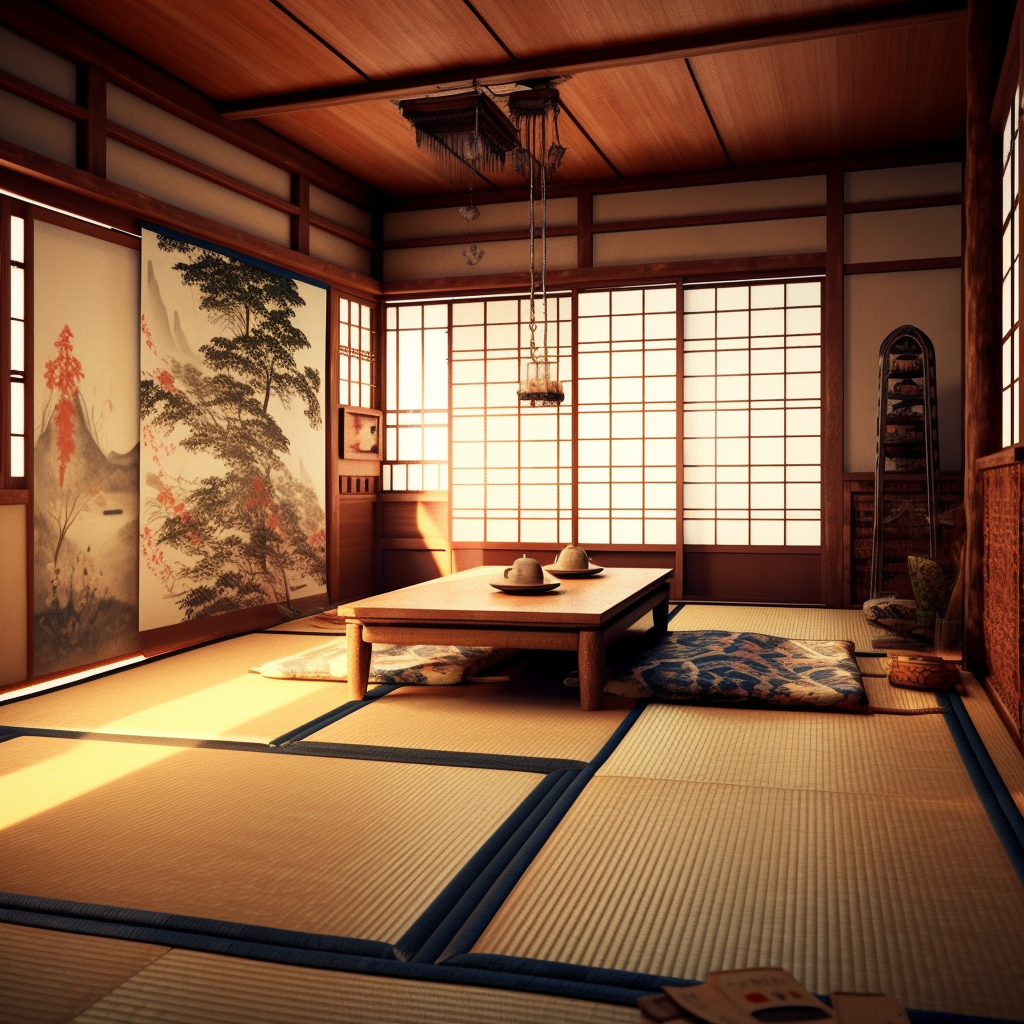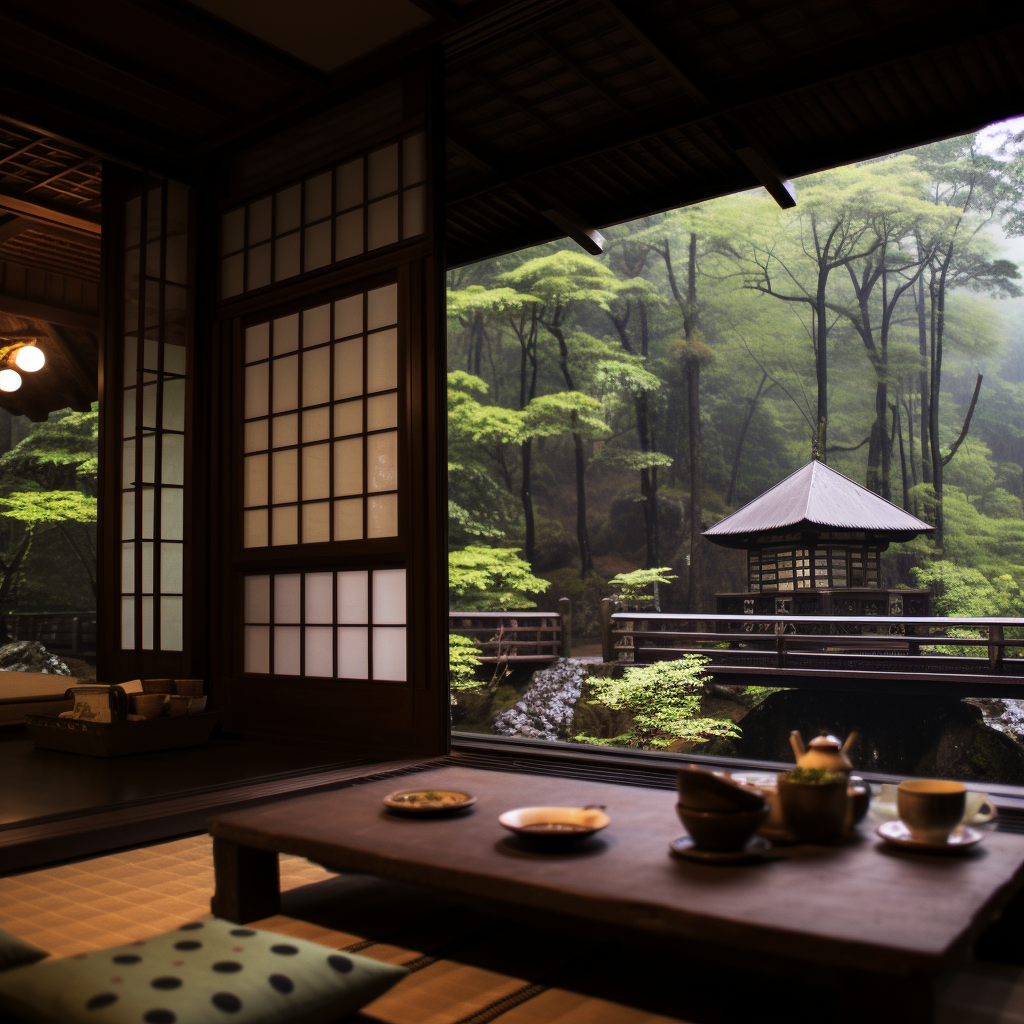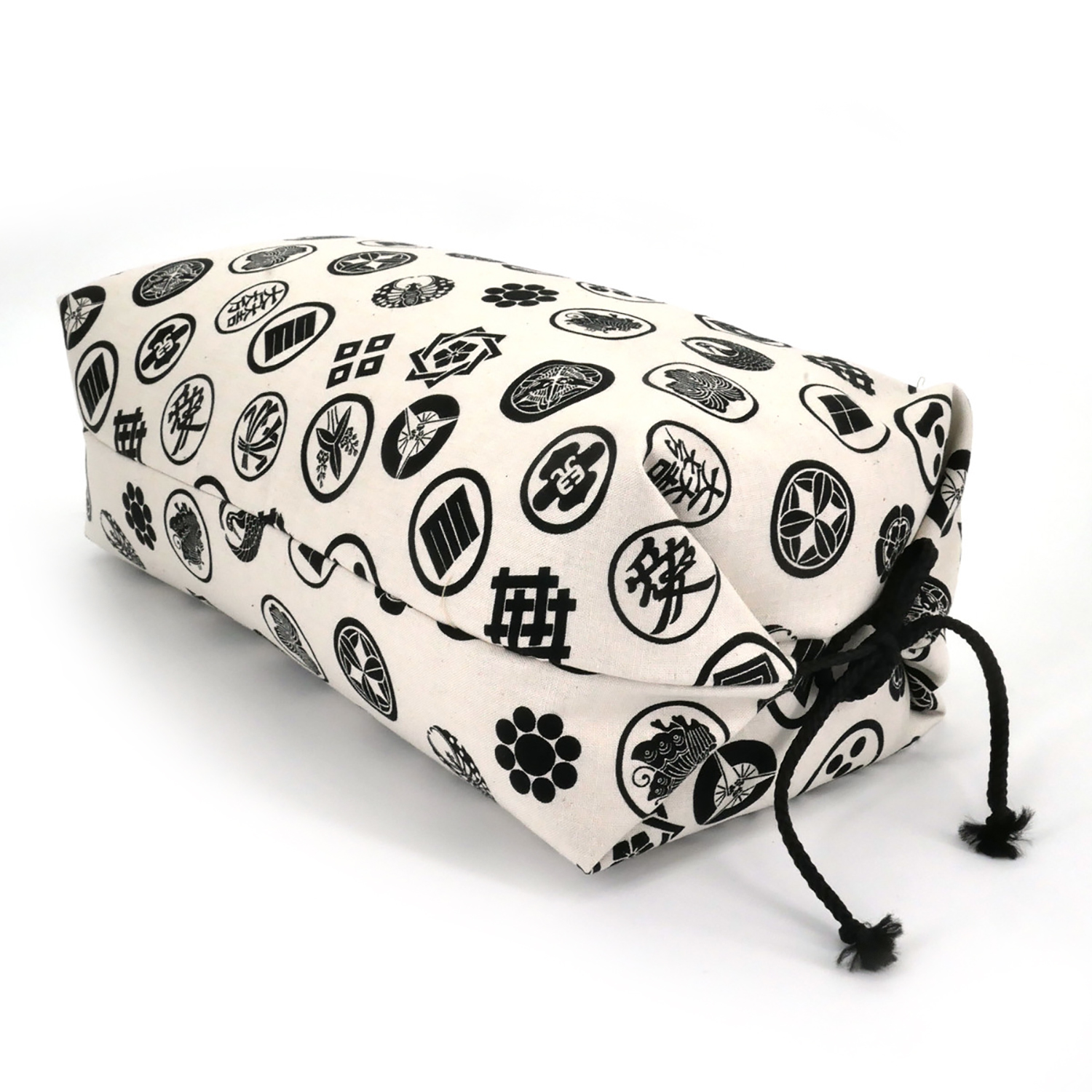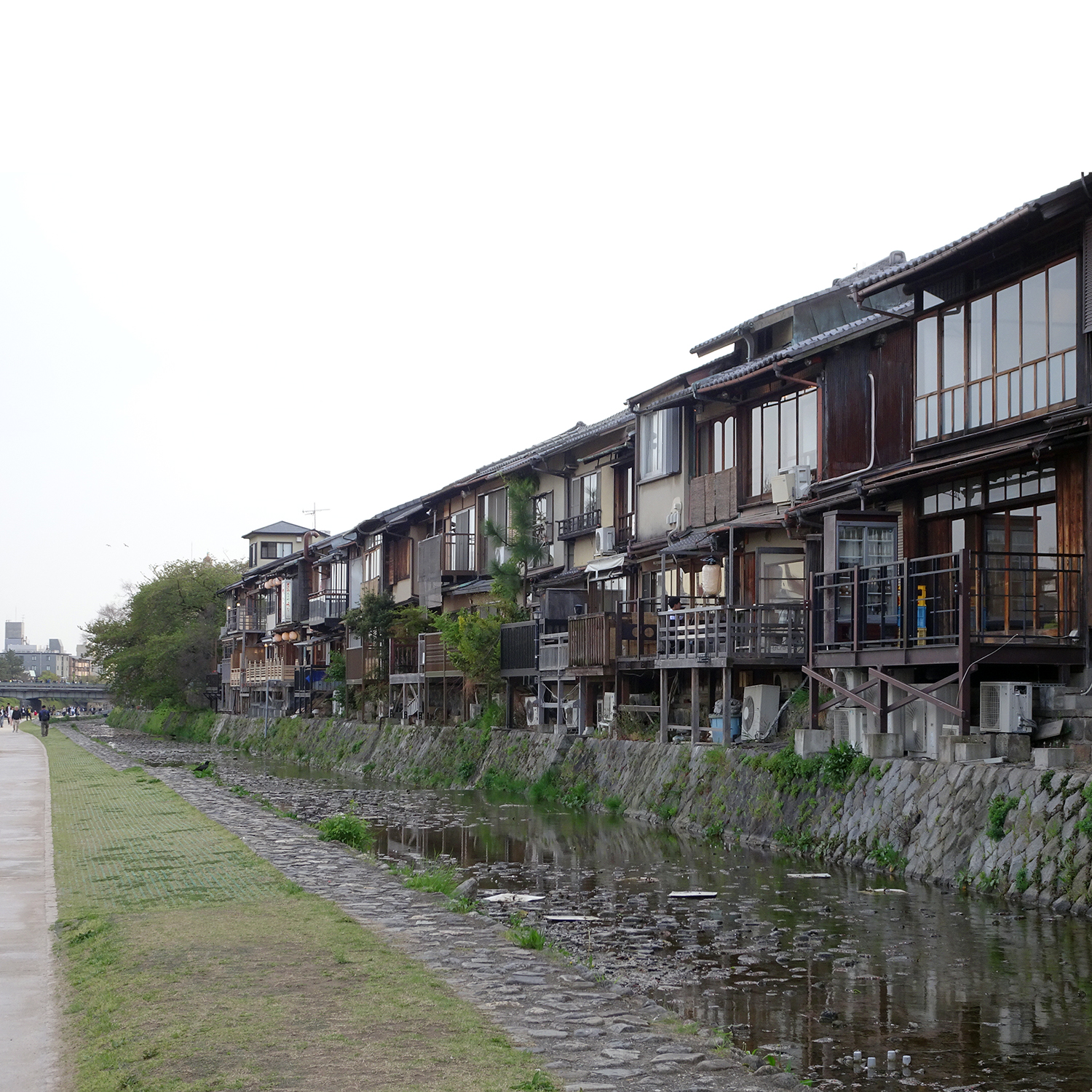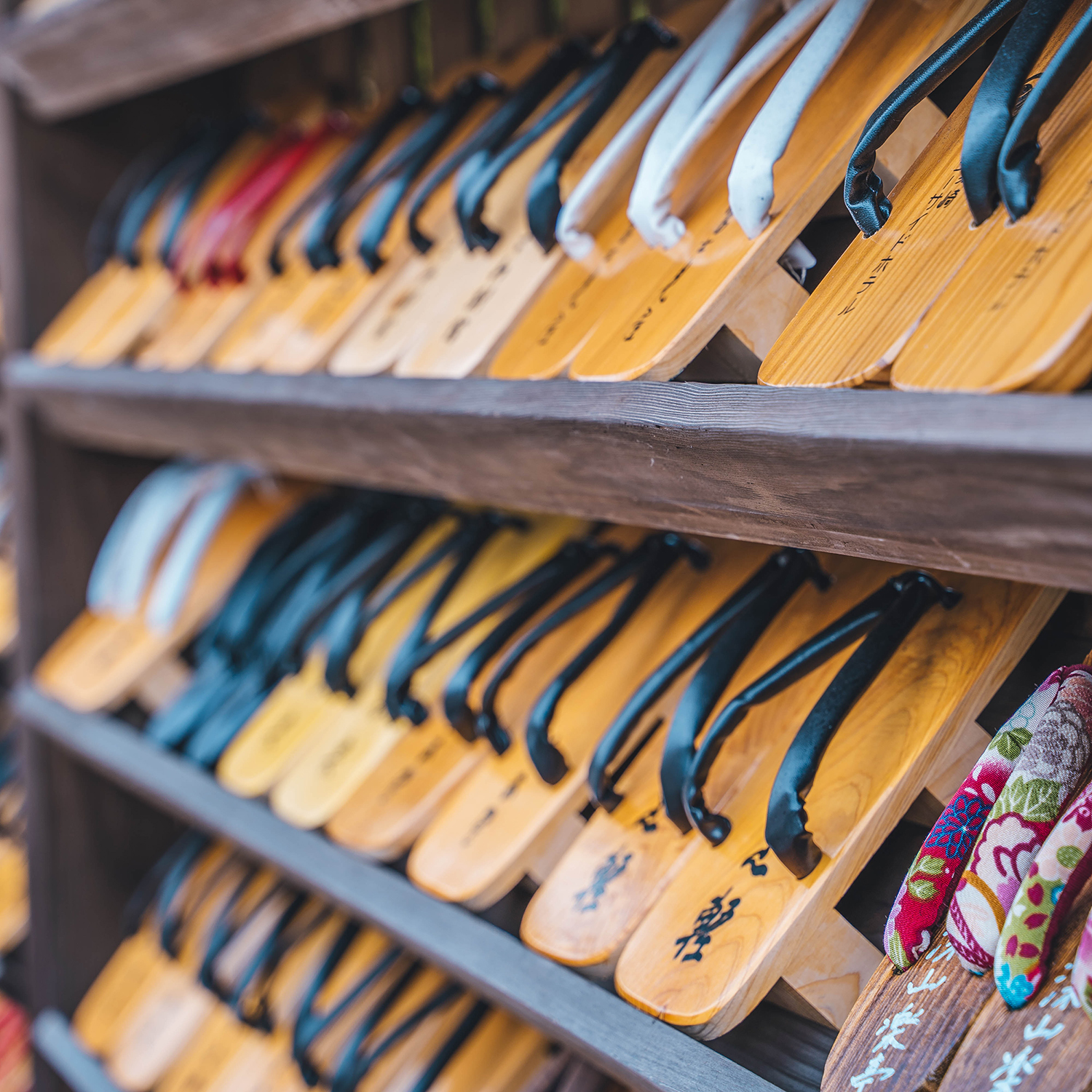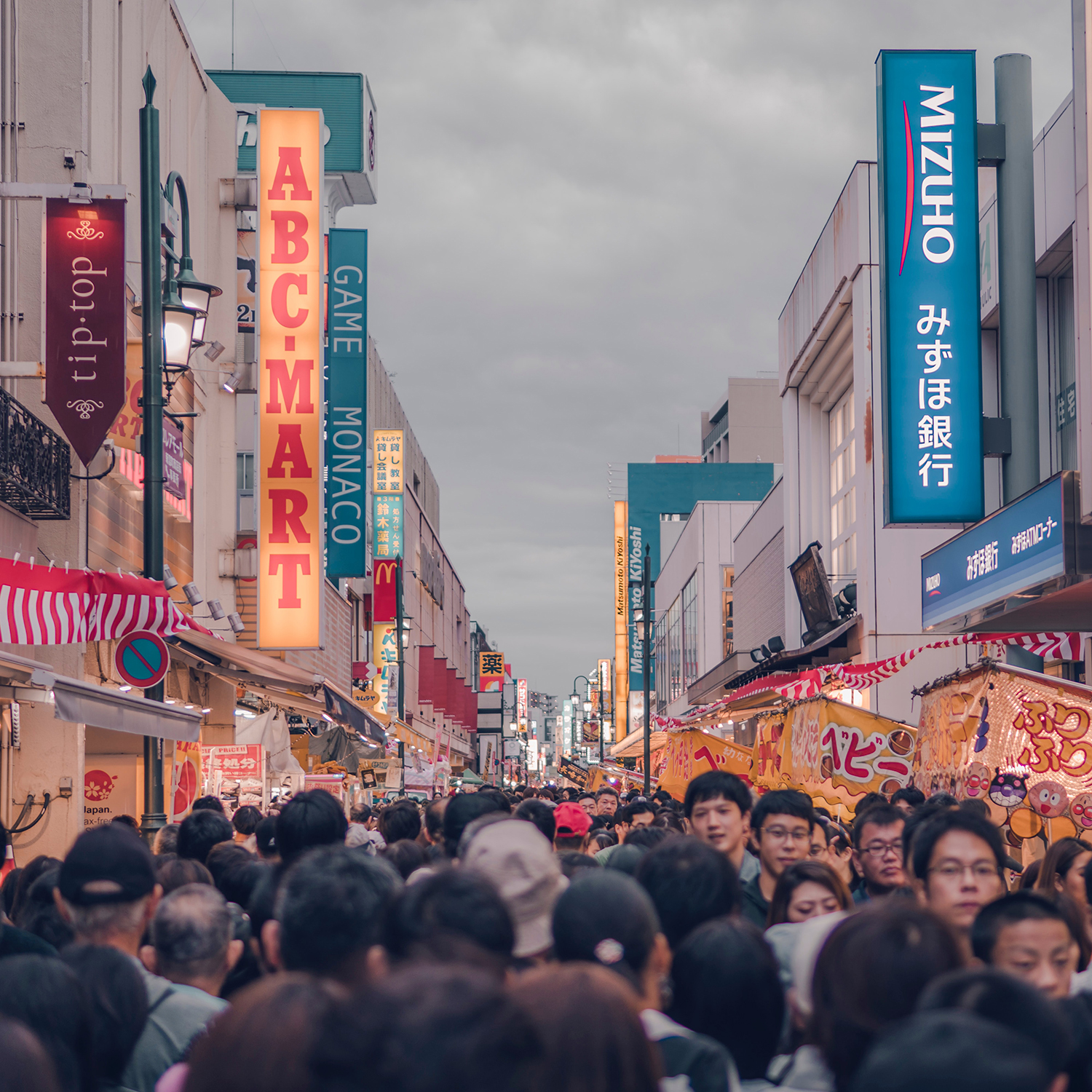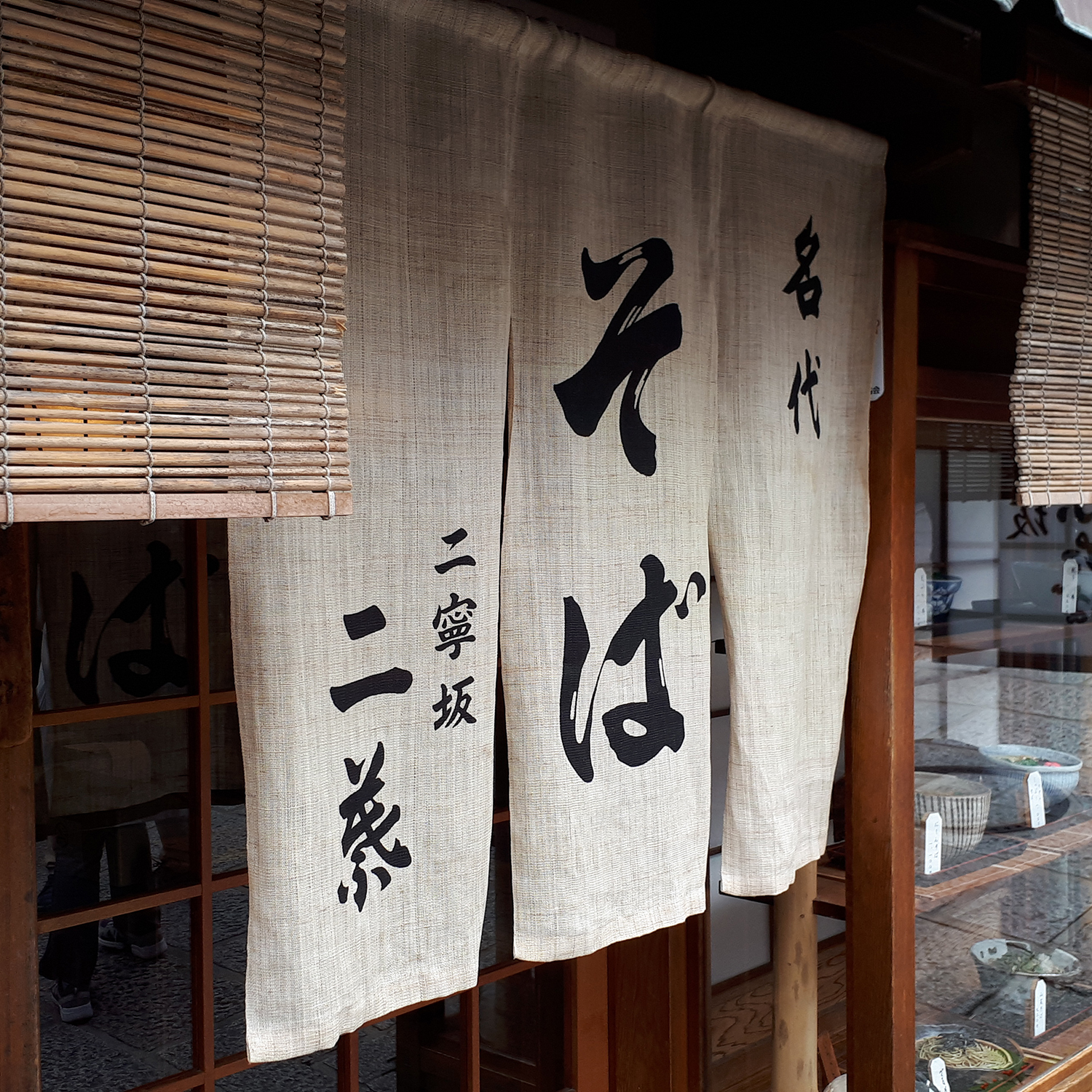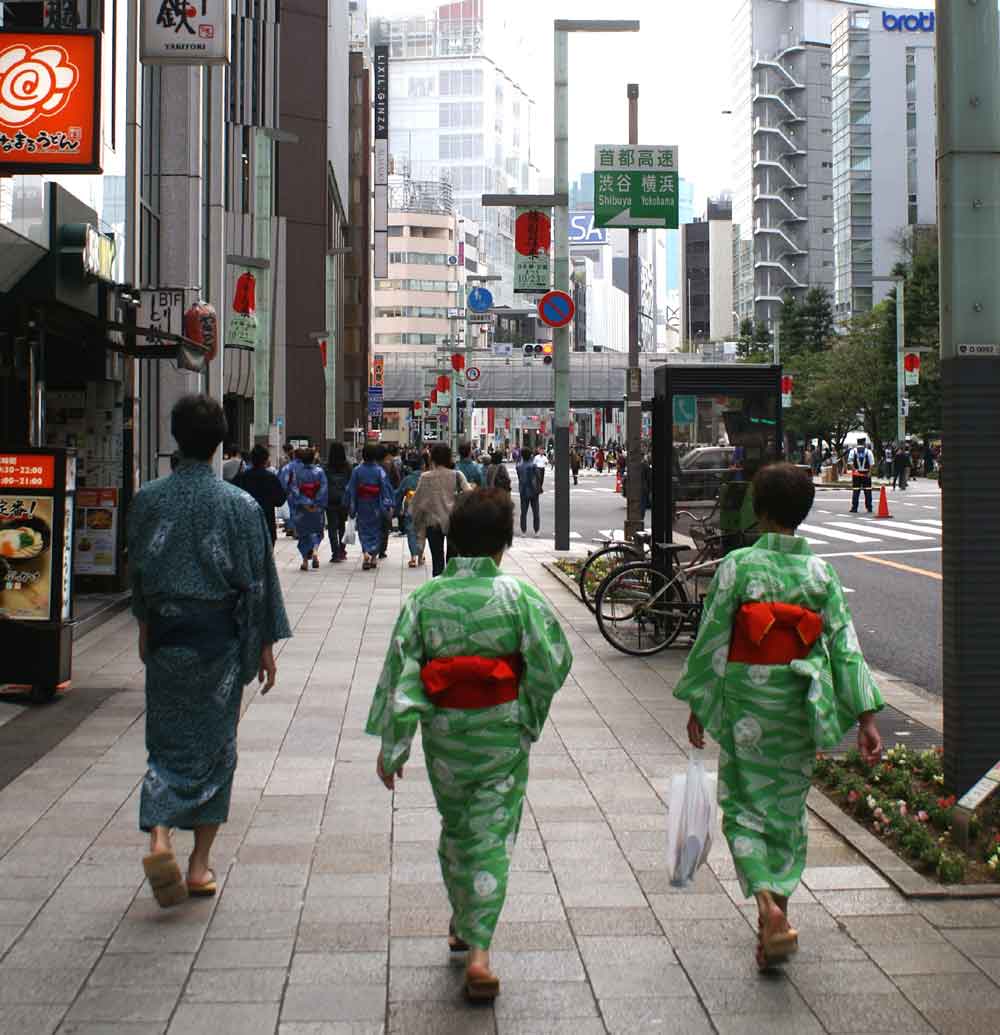The Japanese Way of Life: Between Tradition and Modernity
Japanese society, shaped by centuries of traditions and values, presents a unique way of life that merges harmoniously with modern trends. From consumer society to daily habits, let’s explore the varied facets of daily life in Japan.
Lifestyle
At the heart of the Japanese way of life is an often hectic pace of life, particularly in large metropolises like Tokyo. The Japanese place great importance on efficiency, punctuality and hard work. The concept of “karōshi” (death by overwork) highlighted the challenges associated with this demanding lifestyle.
Consumer society
Japan is a world leader in consumer society. Iconic districts like Ginza in Tokyo are shopping temples where the latest trends in fashion, technology and luxury products are highlighted. The Japanese attach particular importance to product quality, creating a distinct culture of consumerism.
Eating habits
Japanese cuisine, famous for its diversity and delicacy, greatly influences eating habits. Meals are often social occasions, and the presentation of the food is just as important as its taste. The tea ritual, called “sadō” or “chanoyu”, is a traditional practice that embodies elegance and simplicity.
Manners and Etiquette
Social etiquette is of great importance in Japan. The traditional greeting, the “ojigi”, is done by bowing the head, and the rules of politeness are strictly observed. Respect for elders, teachers and colleagues is deeply rooted in society.
Urban and Rural Spaces
The duality between modern urban spaces and preserved rural areas is striking. Megacities with soaring skyscrapers coexist with historic sanctuaries, creating a unique contrast. Connection with nature, even in urban centers, is a notable feature of the Japanese way of life.
Technology and Digitalization
Japan is at the forefront of technology, and digitalization has profoundly influenced daily life. Contactless payments, robots in services and technological innovations are an integral part of everyday life. However, this modernity is rooted in thoughtful and respectful use of technology.
Festivals and Traditions
Traditional festivals, such as Hanami (cherry blossom viewing) and Gion Matsuri in Kyoto, are key times when people celebrate their traditions. These festivals offer a glimpse into the history and culture deeply rooted in Japanese society.
In short, the Japanese way of life is a complex fusion of centuries-old traditions and vibrant modernity. From refined eating habits to precise social etiquette, Japanese society successfully balances its rich cultural heritage with the challenges of contemporary life.
Nominoichi: Discovery of Flea Markets in Japan
In the twists and turns of Japan’s busy streets, in Japanese flea markets, the Nominoichi, unsuspected treasures and forgotten stories are hidden. Treasures ready to…
Chochin Lanterns: The Timeless Brilliance of Japanese Culture
At the heart of rich Japanese culture is a luminous and captivating tradition: Chochin lanterns. These lanterns are symbols of conviviality and artisanal beauty. They…
Animate Stores: A Paradise for Manga Fans
Since their creation, Animate Stores have represented an indisputable pillar of otaku culture. They offer a unique experience to fans of manga, anime and related…
Table Manners in Japan: A Complete Guide
In Japan, meals are not just about food but having good table manners. They are also imbued with traditions and rituals that deeply reflect the…
The Shukubo: Discovery of Japanese Temple Inns
In the serene landscapes of Japan, amid misty mountains and whispering forests, lies a unique lodging experience deeply rooted in tradition and spirituality: Shukubo, temple…
Tobacco in Japan: Between Tradition and Evolution
Tobacco occupies a unique place in Japanese society, combining centuries-old traditions with constant modernization. This plant is native to the Americas and was introduced to…
Japan Railways: An iconic railway network of the nation
The Japanese railway system enjoys a worldwide reputation. Whether for its efficiency, punctuality, cutting-edge technology and vast geographical coverage. Among the various railway companies operating…
The Kōban : A Pillar of the Japanese Police
Deep in Japan’s busy streets, among skyscrapers and residential neighborhoods, lie sanctuaries of safety. They are known as the Kōban and are community police stations.…
Randoseru the Japanese schoolbag
The Randoseru is a traditional Japanese schoolbag used by children to go to elementary school. It is a hard leather bag, resistant and comfortable, which…
The Gachapon: A Dive into the Universe of Surprise Capsules
Gachapon is a form of arcade game popular in Japan. These are small machines that dispense surprise capsules containing a variety of toys, figurines, key…
The Rômaji: A Window to the Japanese Language
The Rômaji, a system of writing Japanese in Latin letters, offers a fascinating entry into the linguistic richness of Japan. This method transliterates kanji, hiragana…
Edo Wonderland in Nikko: Immerse yourself in Japan’s medieval era
Nestled in the green mountains of Tochigi Prefecture, in the heart of Japan, lies an unusual place where time seems to stand still. Edo Wonderland,…
The Konbini: The Epicenters of Urban Life in Japan
In the Japanese urban fabric, an essential element links modern society to its traditions: Konbini, or Japanese convenience stores. These small neighborhood grocery stores are…
The SUICA / PASMO Card for Better Mobility in Japan
When you explore Japan, you’ll discover a state-of-the-art and efficient transportation network that connects cities, neighborhoods, and even the most remote regions from the country.…
The Japan Youth Hostel Association: Hosting Youth
The Japan Youth Hostel Association (JYHA) plays a central role in welcoming travelers to Japan. It offers a unique accommodation experience for young explorers. This…
Typhoons in Japan: Natural Turmoil and Endless Trials
Japan, located in the Pacific Ring of Fire, is often the scene of devastating natural phenomena, including tsunamis or even typhoons occupy a preponderant place.…
Discovering the Tateyama Kurobe Alpine Route
The Tateyama Kurobe Alpine Route is located in the heart of the Japanese Alps. It offers an exceptional experience for travelers seeking breathtaking landscapes, centuries-old…
The Hachikō Dog: The Eternal Example of Canine Loyalty
At the heart of the touching story of unwavering loyalty is Hachikō, a dog whose name has become synonymous with loyalty beyond human understanding. Indeed,…
The Hikikomori: Understanding a Complex Social Phenomenon
The phenomenon of hikikomori is a Japanese term that literally translates to “social withdrawal.” This phenomenon has attracted international attention due to its complexity and…
Japanese Fashion: Between Tradition and Innovation
Japanese fashion, at the crossroads between tradition and avant-garde, captivates the world with its unique aesthetic, bold creativity and deep respect for cultural heritage. Let’s…
Discover the Artistic Splendor of the Miho Museum
The Miho Museum, nestled in the peaceful mountains of Shiga Prefecture in Japan, is much more than just a museum. It is a sanctuary of…
The Kanji – Journey to the Heart of Japanese Writing
The Kanji, these pictorial characters of Chinese origin, form a rich and complex universe within the Japanese language. More than just a writing system, kanji…
Yasumi and Shumi: In search of Japanese balance
At the heart of Japanese culture, the concepts of “Yasumi” and “Shumi” transcend simple pause and passion. These terms reveal the search for balance and…
Aokigahara Jukai : Exploring the Cursed Forest of Japan
Nestled at the foot of Mount Fuji in Japan, Aokigahara Jukai, also known by the sinister name “Suicide Forest” or “Cursed Forest”, arouses both fascination…
The Meishin: Exploring Japanese Superstitions
Japan, steeped in centuries-old history and rich customs, is home to a fascinating array of superstitions that have evolved over time. Among these beliefs, the…
Yomikata: Understanding the Art of Japanese Pronunciation
The Japanese language is rich in nuances and subtleties, and one of the key elements that contribute to its complexity is Yomikata, which literally translates…
An Exploration of Marriage in Japan
Marriage, or 結婚 (Kekkon) in Japanese, is a sacred and tradition-rich institution at the heart of Japanese society. This article delves into the customs, ceremonies…
The Yen (円): A Dive into the Japanese Currency
The Yen, symbolized by 円 and abbreviated JPY, is the monetary unit of Japan. It evokes both the history and modernity of the country. Thus,…
Johatsu: The Evaporated of Japan
At the heart of Japanese society, a little-known phenomenon captures attention: the “Johatsu,” literally translated as “the evaporated.” These mysterious individuals have chosen to disappear…
Seifuku: Japanese School Uniforms
Japanese school uniforms, commonly known as “Seifuku”, have gained international fame. They are known for their elegance and deep-rooted cultural symbolism. These distinctive outfits, worn…
Japanese Honorific Suffixes: Linguistic Exploration
Japan is a country where language and culture are closely linked. Indeed, the extensive use of honorific suffixes is one of the distinctive features of…
Minshukus in Japan: Authentic Immersion in Local Culture
In the heart of the Japanese archipelago, minshukus represent a unique and authentic alternative for travelers looking for an immersive cultural experience. Minshukus in Japan…
The Top Best Shopping Activities in Japan
Japan, land of contrasts between tradition and modernity, offers a unique shopping experience mixing traditional artisanal products and contemporary innovations. Here are the top activities…
Karaoke in Japan : A Symphony of Entertainment
Karaoke, a form of interactive musical entertainment originating from Japan, has captured the hearts of music lovers around the world. However, its history and cultural…
The Japanese Bobtail : Between Unique Tail and Feline Cultural Heritage
The Japanese Bobtail, also known as the “Japanese Bobtail” in English, is a fascinating cat breed that has its roots in the history and culture…
Discovering Love Hotels in Japan : Between Intimacy, Originality and Discretion
Love hotels, or “rabu hoteru” in Japanese, are unique hotel establishments that have gained popularity in Japan over the years. Unlike traditional hotels, love hotels…
Discover the Excellence of Hotels in Japan: Between Tradition and Modernity
Japan, a multifaceted country, offers a unique hospitality experience through its hotels. Between respect for traditions and modern innovations, Japanese hotel establishments appeal to travelers…
Discovering the fascinating Ainu culture in Japan: Tradition, Spirituality and Heritage
Japan, famous for its cultural richness and centuries-old history, is home to a little-known but equally fascinating indigenous community: the Ainu. Originating from the north…
Shichi-go-San: Celebrating Growth and Maturity in Japan
The Shichi-go-San festival, literally “seven-five-three” in Japanese, is a traditional celebration that marks crucial milestones in the lives of Japanese children. This holiday, observed on…
Pachinko: the Japanese obsession with this game of chance and skill
Pachinko is a popular game of chance in Japan, often compared to slot machines found in casinos. It is particularly popular with the Japanese, who…
Japanese education system: structure, values and challenges
The Japanese education system is renowned for its excellence and rigor, contributing greatly to Japan’s reputation as a world leader in education. Structured to promote…
Capsule Hotels: A Compact and Futuristic Housing Experience
Capsule hotels, also known as pod hotels, are an increasingly popular form of accommodation across the world. Designed to offer a compact and economical housing…
Politeness in Japanese culture
Politeness is a fundamental value in Japanese culture. It is omnipresent in all aspects of daily life, whether in social or professional interactions or even…
The Japanese health care system: a global success story
Japan’s healthcare system is often considered one of the best in the world. It offers universal coverage and high quality of care, while keeping costs…
The ancient art of Japanese tattoos.
Japanese tattoos, also known as Irezumi, are an ancient and intricate art form that has a long history in Japanese culture. Japanese tattoos are a…
The Mecha in Japan: A captivating universe of giant robots
The Mecha, these giant robots emblematic of Japanese pop culture, have captured the imagination of fans around the world. In this article, let’s dive into…
The Wonder of Japanese Maples: Beauty and Serenity of Nature
Japanese maples, real plant gems, paint nature with their shimmering colors and offer a unique visual and emotional experience. These majestic trees, belonging to the…
Japanese tatami : tradition and versatility
Japanese tatami mats are a traditional element of Japanese culture that dates back centuries. These woven rice straw mats have been used to cover the…
Japanese onsens: a relaxing and cultural experience
Japanese onsens are a must-see experience for travelers looking to relax and experience Japanese culture. Whether you choose a traditional or modern onsen, in the city or outdoors, a visit to an onsen will undoubtedly be one of the highlights of your trip to Japan.
Discovery of Japanese ryokan: An authentic cultural immersion
Ryokan, a traditional form of Japanese accommodation, are inns that offer travelers a unique and authentic experience of Japan. Nestled in the heart of picturesque…
Exploring the romantic world of yuri in otaku culture
Yuri, also known as “百合” or “girls’ love (GL),” is a genre of manga, anime, novels, and video games that feature romantic and sexual relationships…
Kawaii: The adorable symbol of Japanese pop culture
Kawaii is a unique cultural phenomenon that has become emblematic of Japanese pop culture. Its impact on Japanese society and the world is undeniable, especially in the fields of fashion and entertainment. However, it is important to acknowledge the criticisms surrounding Kawaii and to promote a culture of self-esteem and self-acceptance.
The traditional Japanese cushion: the Makura
Japanese Makura cushions, also known as sarassin husk cushions, are traditional Japanese cushions filled with sarassin husks. These cushions have been used for centuries in…
The Japanese House
The traditional Japanese house, also known as “Minka”, is a typical residence that has been built in the Japanese style for many generations. These houses…
Tamagotchi, the cult toy of the 90s
The Tamagotchi (たまごっち), a toy that became cult in the 90s, is back in the spotlight in this year 2020. This small egg-shaped object is…
Japanese geta
Geta are traditional Japanese sandals that date back to the Edo period (1603-1868). They consist of a wooden platform and two straps that are attached…
Demography and population distribution of Japan
Japan is a sparsely populated country, with approximately 126 million people in 2021. Japan’s population is concentrated mainly in major cities such as Tokyo, Yokohama,…
Discover the Japanese NOREN
Japanese noren is a traditional piece of fabric used as a curtain or doorway in stores, restaurants or homes. This small hanging is usually between…
Koi carp, the star of Japanese ponds
The history and origin of koi carp The Koi carp, symbol of strength and love and represents the power of Japan, is the result of…
Japanese heritage, between tradition and modernity
Japanese heritage, pivotal periods in history, emblematic monuments, diverse and varied personalities who have marked Japanese society or reviews of traditional objects, you will travel…

